#st movie references
Explore tagged Tumblr posts
Text
Thinking about Matthew Modine in Birdy (1984)...
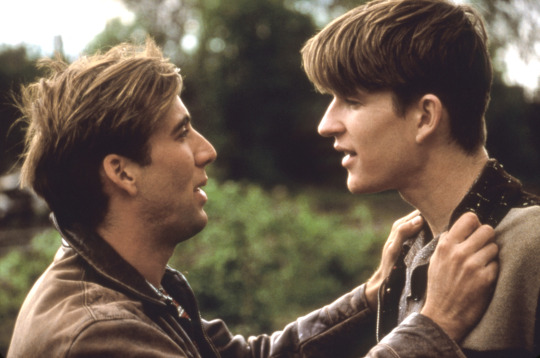
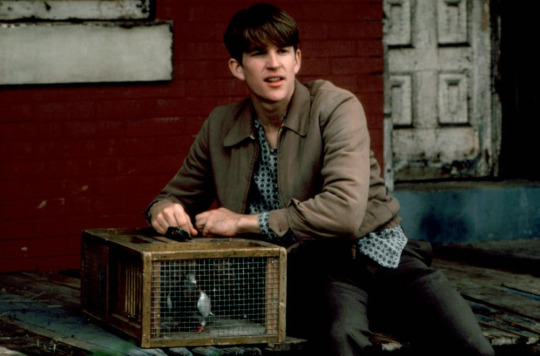


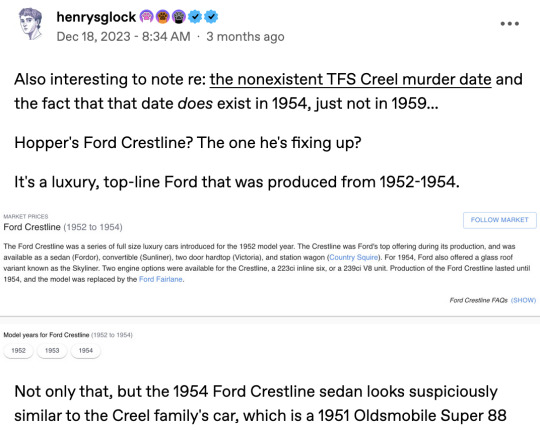


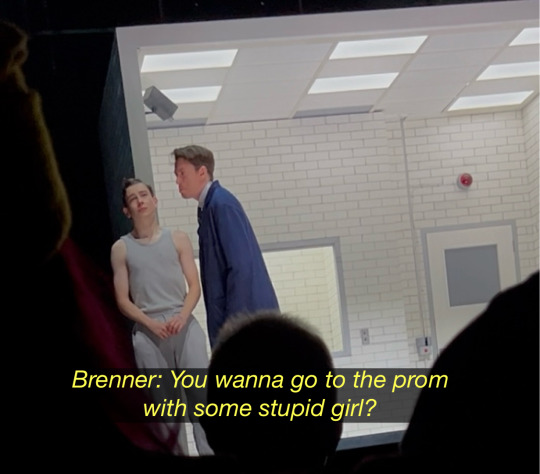

(the unsolvable triangle of intratextual references ^)
Also: Stranger Things really is a love letter to Matthew Modine...I mean damn...right down to the bandages on Brenner Sr when he returned from Dimension X:
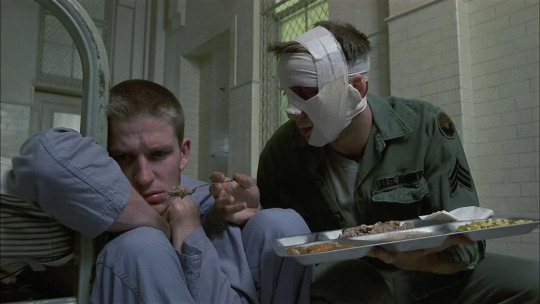
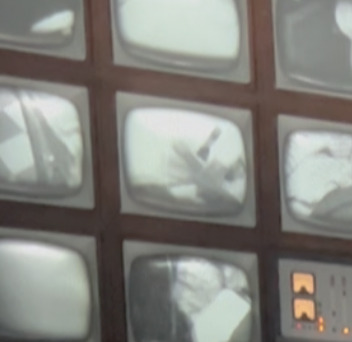
30 notes
·
View notes
Text









well. WELL! [tosses hands up]
Probably has been pointed out already, but Dr. Hatch (the main doctor in the Pennhurst asylum) looks fairly similar to Dr. Cawley from Shutter Island.
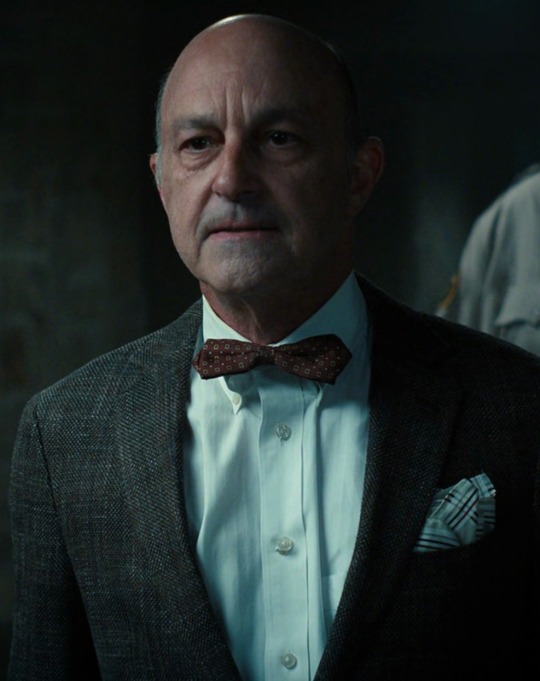
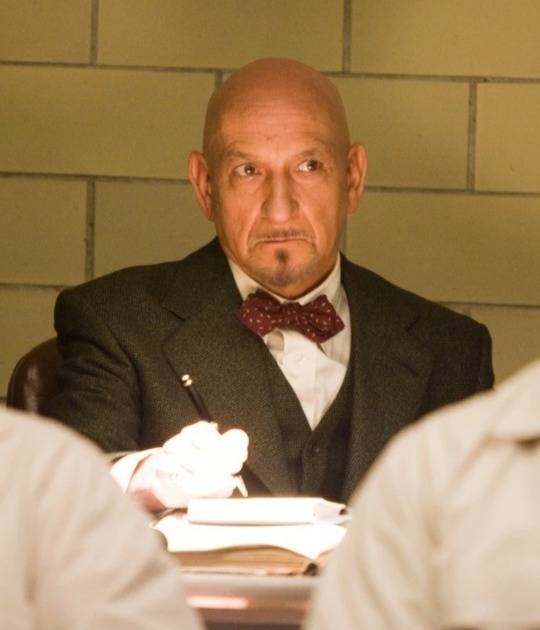
Even the tie is almost identical.
43 notes
·
View notes
Text


#the author actually did speak with Leonard Nimoy and Harve Bennett prior to ST IV & has a thank you in the movie’s credits#so it’s not an out of the blue reference but it is kinda funny#star trek tos#star trek novels#leonard mccoy#llissa kkayn#deep domain#howard weinstein
16 notes
·
View notes
Text
When byler is trekking the UD together in s5 and one of them brings up how they’re like Sam and Frodo 😳

#byler#stranger things#then what?#we would never recover I fear#no bc imagine antis not being able to refute byler paralleling sam and frodo bc mike and will themselves make a joke about it…#for reference st has made references to LOTR before#even some of will’s drawings in the earlier seasons seem LOTR inspired#it goes even further beyond that with several moments paralleling Sam and Frodo with Mike and Will…#with the added bonus of sean astin literally right there in the shot beside mike 😭#and given one of the few things we know about s5 is that it’s going to be inspired by Return of the King…#with sam and frodo journeying towards mordor…#combined with all the hints that mike and will are going to end up alone in the UD together…#there’s a serious possibility one of our final verbal LOTR references is gonna be byler/samfro related#let that sink in…#‘remember when the boys made us watch that movie about the gay guys on the mountain!’#‘Lord of the Rings!’#the fact that this joke not only applies to lord of the rings but also brokeback mountain 😭#anyways#summer roberts predicted byler endgame believe it or not
116 notes
·
View notes
Text

[TUVOKTOBER: Day 17] Little Things Grown with Care.
#I drew this based heavily on illustrations by seiichi hayashi! They all have a pretty calming dreamy feel#I also had to reference Tuvok's room which was HARD#You catch a glimpse of it in 'Alter Ego' though.#he has so many candles and candle holders and ornate looking trinkets#I like it...it feels grandparent-cozy if that makes sense? Like it'd smell of incense and be a little too warm#and then there's also - of course- the plants <3 mostly flowers#I like the thought of Tuvok's loungewear being a bit fancy and silky#but when someone knocks at the door he quickly pulls on a robe or gown to go over it for modesty's sake#I wonder what he does in the privacy of his quarters...we really on see him meditating or reading#I wonder if he ever watches a movie and eats whatever he'd consider a snack while lounging on the couch#I wonder if he hums while cleaning#Tuvoktober#Tuvok#st voyager#st voyager art
133 notes
·
View notes
Text
El hasn't seen that many movies due to her childhood and that includes children movies. So the kids, especially the girls are now trying to help her "catch up", wanting to show her their favorite childhood movies. And for some reason they gotta do this at Steve's house. Because apparently he has the best equipment for movie nights and he works at the Family Video so he can also get them the movies they don't have in their collections. So yeah, Steve gets it and he doesn't really mind. If the boys (and Erica) can have their DnD nights at his house, the girls can have their little movie nights too.
And it's not like Steve has seen most of these movies either. Some of them for sure but if they go into like princess or cutesy movie territory then that's all new to him. It's not like his dad ever let him watch anything too "girly", so more often than not he finds himself watching those movies with the same wonderment as El. Even when he totally planned to do something else meanwhile the movie plays, he ends up sitting with them through most of them. Enjoys them even. When your own love life is (presumably) a mess you, as a hopeless romantic, can at least enjoy some fairytale love stories.
The only minor problem with all this.. Is the songs. They get stuck on Steve's head with such a ease he ends up singing and humming them more than he would like to admit. If only the stuff at school had stuck that easy..
So when it's DnD night and he is prepping some snacks for the party (he tries to make them eat something healthy too with varied success) and if Eddie shows up little early and catches him singing "Some day my prince will come" and scares him shitless when he turns around and sees him leaning on the door frame with shit eating grin, that's just gonna stay between them right? And if the "sorry, I guess I'm the wrong kind of prince here" doesn't sit quite right in his mind, that's something to figure out later, right?
He tells Eddie to shut up and throws a dish towel at him, which he dodges with annoying ease. And when he walks up to Steve, starts singing something that Steve soon enough recognizes as one other princess movie song and then makes Steve dance with him, twirling him around the kitchen until he is giggling and starts singing along, only stopping when they hear the doorbell ring.. When he whispers to Eddie he is ridiculous but still feeds him a strawberry from the cutting board he was using to prep the snacks, before heading to open the door. Yeah that's all gonna be packed into the messy love life category of his brain and to be figured out later, definitely.
And this all definitely increases the usage of "princess" and princess themed nicknames Eddie keeps throwing at him. Steve hates that he doesn't really hate it.
#steddie#Steve Harrington#eddie munson#st steddie#it's the other older hellfire guys at the door#the kids would not be knocking or ringing any doorbells#if the door was locked they would rather throw a brick thru a window and climb in before knocking#steve hasn't seen most of these movies because his dad wouldnt let him#eddie's dad didnt let eddie watch them either but he would have watched them later on#that man would watch anything fantasy related#like he heard sleeping beauty has a dragon in it so he is absolutely watching it#for reference and what not#sorry im rambling#also feeling mushy about steddie so enjoy <3
114 notes
·
View notes
Text
to be clear i do think that the mcu has a problem of a very high barrier to entry for most of its recent releases. i think they need to get better at making new releases understandable to casual fans. but i also don't think deadpool & wolverine has that problem? like it may seem similar on the surface but i don't think they're 100% comperable.
first of all it's a deadpool movie. it's going to be full of meta humor and comic book in-jokes and references by nature of being a deadpool movie. i don't think in-jokes or fanservice is inherently bad, i don't think making a movie for fans is inherently bad, just the way the mcu tends to implement this tends to be bad.
but also i don't think having to have seen ten movies and a tv shows to understand any given recent mcu release is the same as having to have seen ten movies and a tv show to understand a movie that is very explicitly and very intentionally the ending to a 20+ year franchise. like i'm sorry but i don't think these are the same situation.
(and this isn't to say that dp&w is a perfect movie or that every single individual joke or reference landed obviously it has its issues like any movie i just don't think it has the same issues or as many issues as the average mcu project)
#deadpool and wolverine#i speak#mcu critical#dp&w is like the lego bat/man movie to me#you're obv going to get a lot more out of it if you're a fan but you can follow the story and have a fun time regardless#and it's clearly been made with an outpouring of love for the source material#meanwhile the mcu as a whole is more like recent st/ar wars to me#where it doesn't just have cameos and references and injokes it basically IS cameos and references and injokes#and is not always but more often than not made by people who don't seem to really care or at times actively dislike the source material
5 notes
·
View notes
Text
season one of ds9 is funny to me personally because i’ve heard it’s pretty mild compared to other seasons or whatever and most people skip it but i have 4 episodes left and i haven’t skipped any yet. <not bragging btw. it’s just that every time i start a new one i’ll go like ok ^__^ i’ll watch a little bit and if it’s bad or boring i’ll skip it but it’ll always hook me using the cheapest trick. ooh what is this mystery illness....who is this alien guy.....why are people’s fantasies manifesting.....and i’ll be like oh my. yeah right..why.....and then watch the whole thing absolutely captivated
#it's also funny because st has got me watching like 4-5 episodes in a row where i find it difficult to focus on a movie for 90 minutes#<i mean i do take breaks. in fact i'm taking one now but if i get bored of a movie i might just leave it be forever#i also don't really. watch shows? so i don't have any sort of. reference for ds9 and if it's good or bad and why
14 notes
·
View notes
Text
Henry, NINA, and Weird Science (1985)
I'm sure someone somewhere has talked about Weird Science, but...I'm not sure it's in the vein I'm about to talk about to discuss.
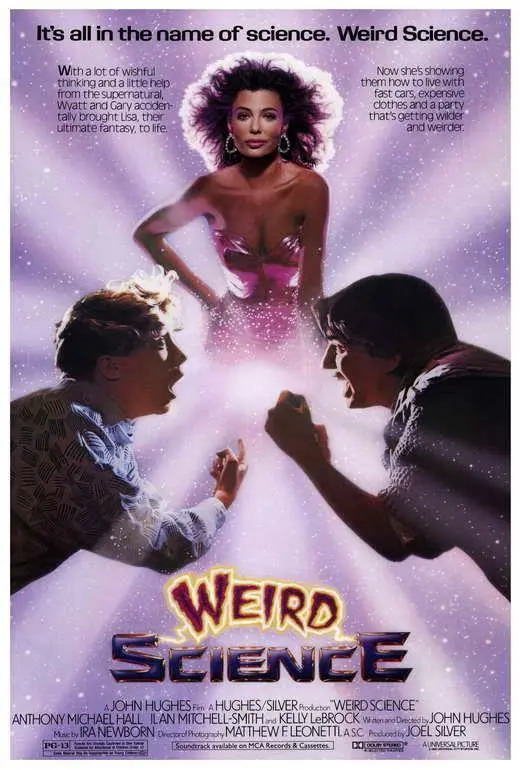
For those who don't already know, Weird Science (1985) centers around two teen boys who frankenstein a perfect woman into existence. Hijinks ensue, typical '80s film.
What gets weirder about Weird Science, though, is how many parallels it has to ST...and not just ST4, especially for a movie on the ST4 board.
Lisa is the product of a doll and a government computer system:

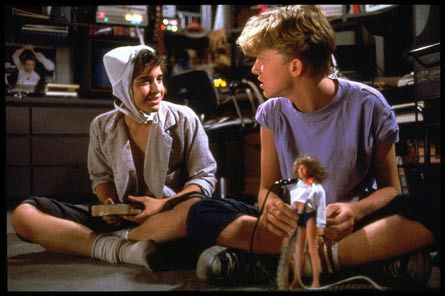
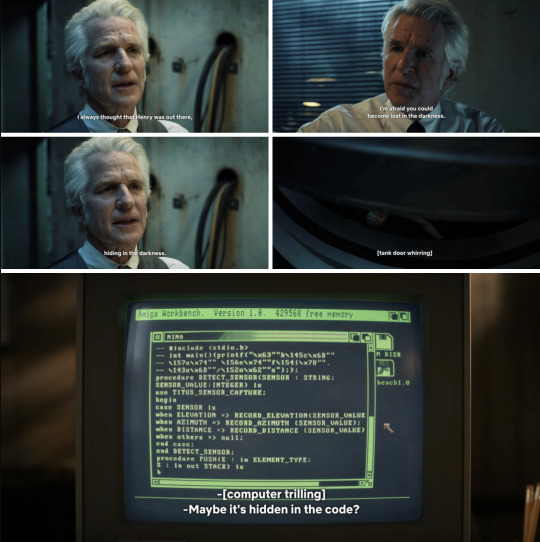
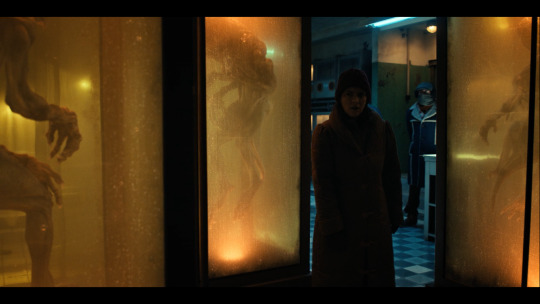
2. Lisa takes on bullies after they throw a cherry icee on Gary and Wyatt at the mall:

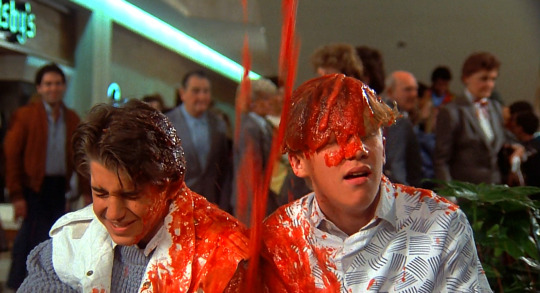
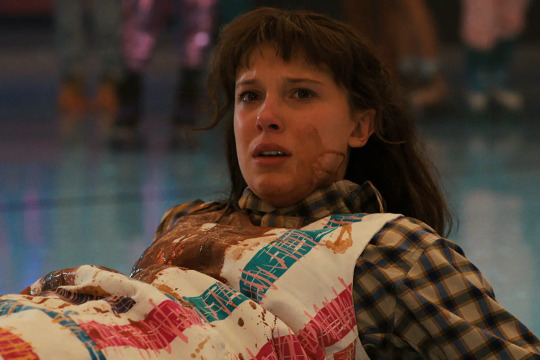
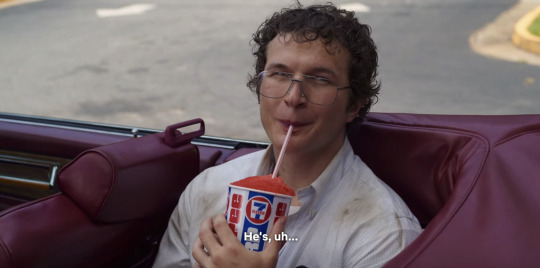
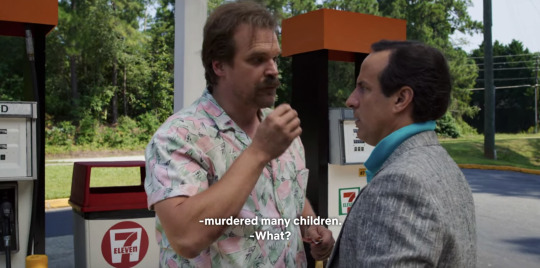
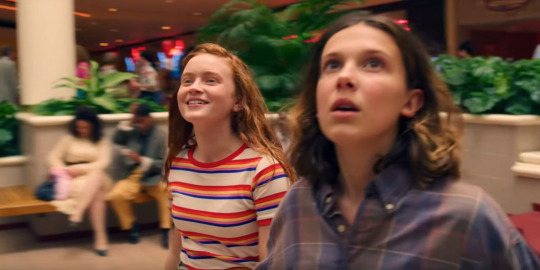
(Not pictured: El exploding a milkshake all over some mean girls at Starcourt)
3. Lisa can wipe people's memories:

4. The boys try to recreate Lisa and end up creating a missile instead:

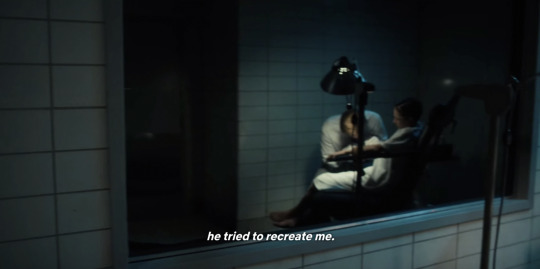
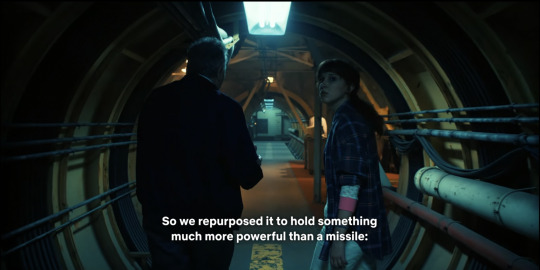
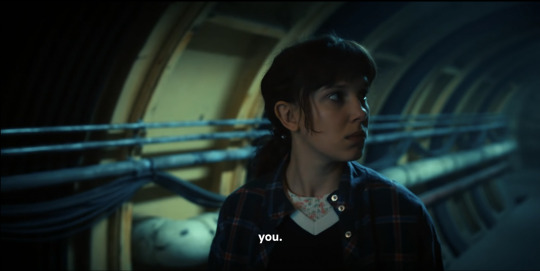
5. Lisa can put people in comas and puts Gary/Wyatt in danger to "boost their confidence"

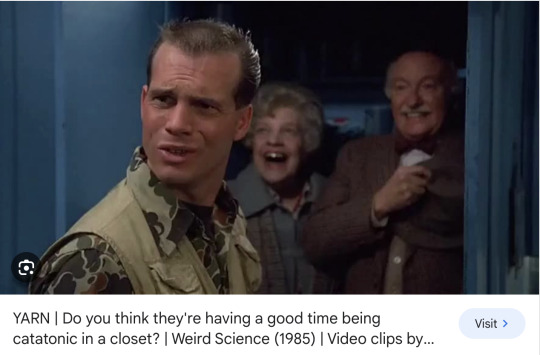
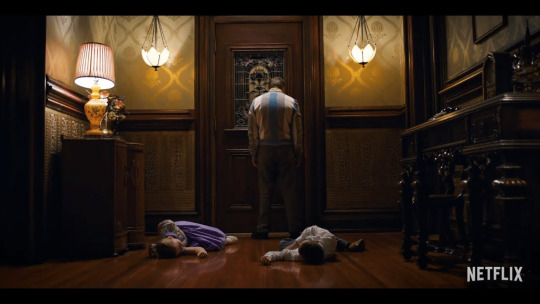
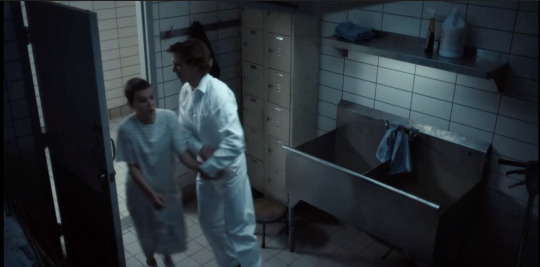
(Do you think they're having a good time being catatonic in a closet, Henry?)
6. She literally disappears in a cloud of smoke once her purpose has been fulfilled

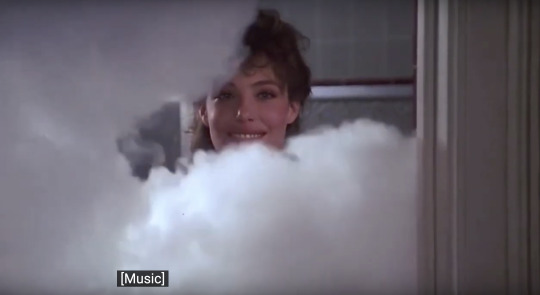
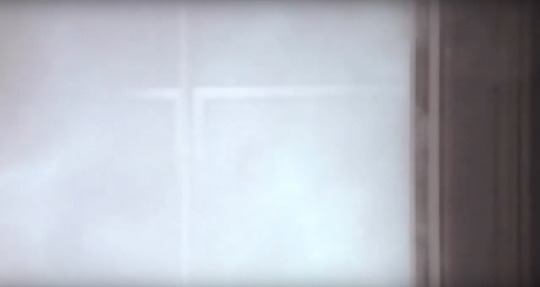
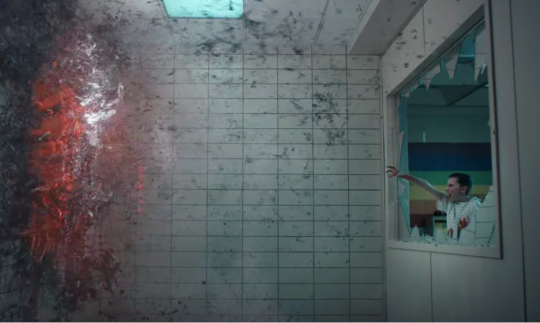
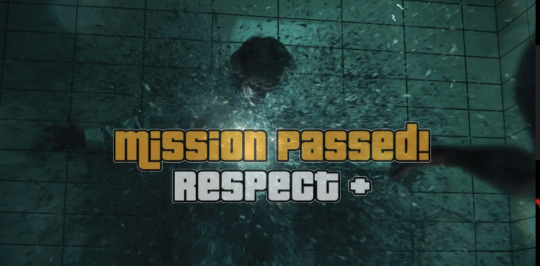
7. Lisa reappears as the gym teacher at the high school at the end of the film

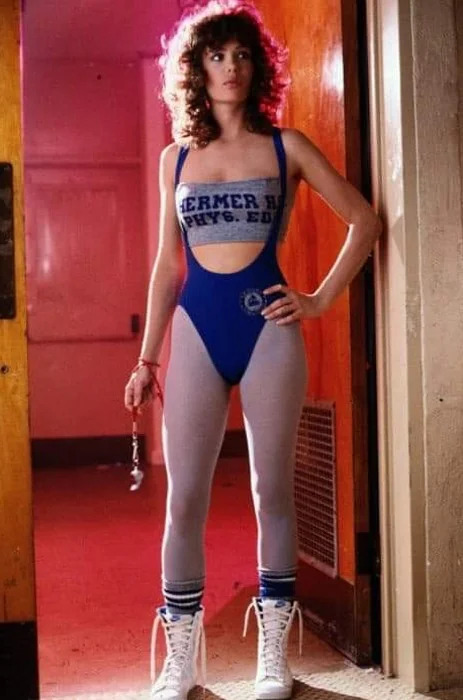
Now...why do I care that she reappears at the end of the movie as a real person?
Well. Have we or have we not already seen a gym-teacher type Henry lookalike?
(The answer is yes)
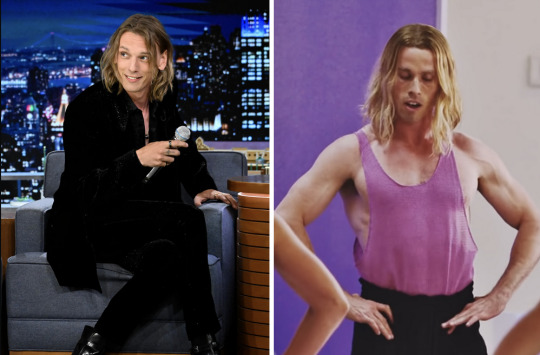
A Henry lookalike who persists in supernatural scenes with El, no less:
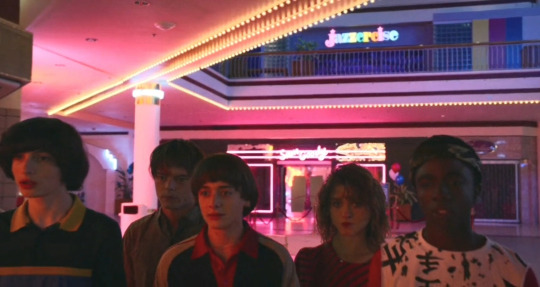
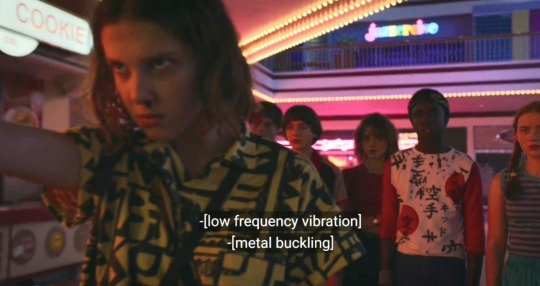
(peep the Jazzercise in the background...)
If we take Mr. Jazzercise as the Gym Teacher to Henry's Lisa...then where's Henry?
Possibly, like Lisa, in the computer.
tl;dr: Get that man out of Brenner's Torment Nexus Matrix Device (the NINA program) and into reality, tyvm.
41 notes
·
View notes
Text
Fanfics where *all* the characters are OOC are lowkey so fun actually
#like it’s one thing if it’s one character egregiously OOC but when it’s all of them?#it’s like its own little book/movie but with built-in faceclaims/casts/visual-reference#reading ST Heathers AU rn and absolutely *nobody* is in character so far but i actually love it lol
0 notes
Text
Note: this list references the 1961 version of West Side Story and the 1954 version of A Star Is Born.
#american film institute#afi#musical film#movie musical#old hollywood#old films#old movies#vintage movies#technicolor#classic film#classic cinema#singin in the rain#west side story#west side story 1961#the wizard of oz#the sound of music#cabaret#mary poppins#cabaret 1972#my fair lady#an american in paris#meet me in st. louis#1930s movies#1940s movies#1950s movies#1960s movies#1970s movies#movie polls#a star is born#a star is born 1954
1K notes
·
View notes
Text
DISCUSSION ABOUT EL’S POTENTIAL ENDING
So Millie has been giving a lot of interviews lately promoting her latest film Damsel, and ofc interviewers have been trying to get some ST5 info out of her. (We all saw that clip where Mlvn got mentioned to her and the face she made lol)
Well there are two new interviews in which Millie talks about El and they are making me kind of nervous…for lack of a better word.
The first is this one…
She was asked what song helps her cry, and she said “when it’s cold I’d like to die” Now that song famously plays every time a character dies on ST, so it wouldn’t be weird for an actor in the show to associate it with sentimental emotions. However, what concerns me a bit is that she mentions that this is “El’s theme” uh??? Since when girl??
The other interview I’ve already seen it floating around so I won’t add a clip, but she was basically asked about whether she knows how it ends for her character. She goes on to say that she asked for a meeting with the Duffers and she saw a board with her character’s fate and went “ohhhh” and slowly walked out.
I’m not gonna lie that answer is not inspiring happiness in me.
I don’t think the Duffers will “traditionally” kill El. In the sense that I don’t think they would fully kill her off (that would be too fucked up). I do wonder if her character will be around after Vecna has lost and the supernatural has gone away, though. Will she somehow disappear after the conflict is gone? Was she part of a bigger allegory or metaphor related to the supernatural plot of the show?
In the original pitch, the Duffers described El and Mike’s relationship as an Elliot and ET bond. ET is an alien, therefore at the end of the movie he has to leave Earth. He can’t stay there with the other characters. Are we gonna see something similar regarding El? She won’t die but maybe she has to go/be somewhere else?
I don’t want to alarm anyone it’s just that I feel like I’m putting some pieces together here lol…
The Duffers also admitted after S2 came out that El was originally written to “die”, as in she was gonna disappear when she took out the demogorgon. However, they changed their minds when the show got renewed for more seasons. Nonetheless, the Duffers have said that their ending for S5 draws inspiration from the ending of S1.
What the hell are they referring to with this???
I’m also aware that Millie is an actress and she’s drumming up suspense for the show. I know she has admitted to lying in interviews just for fun too. Can’t really trust an actor ever, but I do wonder if we’re seeing some truth from her here.
What do you guys think? Any theories?
578 notes
·
View notes
Text
Food on St Patrick's Day (in the USA)...
...is usually Corned Beef & Cabbage, which is the Irish-American version of the original Irish boiled bacon & cabbage, but while the celebratory Irishness is still going strong, try something a bit more authentic.
A nice warm coddle. Not cuddle, coddle, though just as comforting in its own way. (Some sources suggest it's a hangover cure, not that such a thing would ever be necessary at this time of year, oh dear me no.)
Coddle is a stew using potatoes, onions, bacon, sausages, stout-if-desired / stock-if-not, pepper, sage, thyme and Time.
You'll often see it called "Dublin Coddle", but my Mum made Lisburn Coddle lots of times, I've made West Wicklow Coddle more than once, and on one occasion in a Belgian holiday apartment I made Brugsekoddel, which is an OK spelling for something that doesn't exist in any cookbook.
*****
I do remember one amendment I made to Mum's recipe, which met with slight resistance at the time and great appreciation thereafter.
Her coddle was originally cooked on the stove-top, not in the oven, and nothing was pre-cooked. Potatoes were quartered, onions were sliced, bacon was cut into chunks and then everything went into the big iron casserole, then onto the slow back ring, and there it simmered Until Done.
However, the bacon was thick-cut back rashers, and the sausages were pork chipolatas.
Raw, they looked like this:
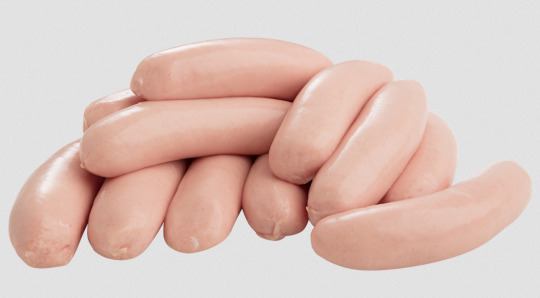
...and the bacon looked like this:

Cooked in the way Mum initially did, they looked pretty much the same afterwards. The sausages didn't change colour. Nor did the bacon.
While everything tasted fine, the meat parts always looked - to me, anyway - somewhat ... less than appealing. "Surgical appliance pink" is the kindest way to put it, and that's all I'm saying. This is apparently "white coddle" and Dubs can get quite defensive about This Is The Way It SHOULD Look.
I'm not a Dub, so I persuaded Mum to fry both the bacon and sausages first, just enough to get a bit of brown on, and wow! Improvement! I remember my Dad nodding in approval but - because he was Wise - not saying anything aloud until Mum gave it the green light as well.
Doing the coddle in the oven, first with lid on then with lid off, came later and met with equal approval. So did using only half of the onion raw and frying the other half lightly golden in the bacon fat.
Nobody quoted from a movie that wouldn't be made for another decade, but there was a definite feeling of...
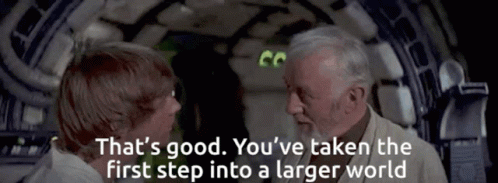
*****
There are coddle recipes all over the Net: I've made sure that these are from Ireland to avoid the corned-beef-not-boiled-bacon "adjustment" versions which are definitely out there. I've already seen one with Bratwurst. Just wait, it'll be chorizo next.
Oh, hell's teeth, I was right. And from RTE...
Returning to relative normality, here's Donal Skehan's white coddle and his browned coddle with barley (I'm going to try that one).


Here's Dairina Allen's Frenchified with US measurements version. (I feel considerably less heretical now.)

And finally (OK, not Irish, but it references a couple of the previous ones and is a VERY comprehensive write-up, so gets a pass) Felicity Cloake's Perfect Dublin Coddle (perfect according to who, exactly...?) in The Guardian.

*****
Returning to the beginning, and how boiled bacon became corned beef (a question which prompted @dduane to start an entire website...!)
The traditional Irish meat animal for those who could afford it was the pig, but when Irish immigrants (even before the Great Famine) arrived in the USA, they often lived in the same urban districts as Jewish immigrants from Eastern Europe.
For fairly obvious reasons pork, bacon and other piggy products were unavailable in those districts, but salt beef was right there and far cheaper than any meat Irish immigrants had ever seen before.
Insist on tradition or eat what was easy to find? There'd have been contest - and do I sometimes wonder a bit if sauerkraut ever came close to replacing cabbage for the same reason.
The pre-Famine Irish palate liked sour tastes: a German (?) visitor to Ireland in the mid-1600s wrote about about what were called "the best-favoured peasantry in Europe", and mentioned that they had "seventy-several sour milks and creams*, and the sourer they be, the better they like them."
* Yogurt? Kefir? Skyr? Gosh...
Corned beef and Kraut as the immigrants' celebratory "Irish" meal for St Patrick's Day? Maybe, maybe not.
Time for "Immigrant Song" (with kittens).
youtube
*****
Corned beef got its name from the size of the salt grains with which the beef was prepared. They were usually bigger than kosher salt, like pinhead oats or even as large as grains of wheat, and their name derived originally from "corned (gun)powder", the large coarse grains used in cannon.
BTW, "corn" has been a generic English term for "grain" for centuries, and "but Europe didn't have corn" is an American mistake assuming the word refers to sweetcorn / maize, which it doesn't.
Lindsey Davis, author of the "Falco" series, had a couple of rants about it and other US-requested "corrections". As she points out, mistakes need corrected but "corn" is not a mistake, just a difference in vocabulary.
*****
In Ancient and Medieval Ireland pig would have included wild boar, the hunting of which was a suitable pastime for warriors and heroes, because Mr Boar took a very dim view of the whole proceeding and wasn't shy about showing it (see "wild boar" in my tags and learn more).
Cattle were for milk, butter, cream and little cattle; also wealth, status, and heroic displays in their theft, defence or recovery. It's no accident that THE great Irish epic is "The Cattle-Raid of Cooley" / Táin Bó Cúailnge (tawn / toyn boh cool-nyah).
Killing a cow for meat was ostentation on a level of lighting cigars with 100-, or even 500-, currency-unit notes. Once it had been cooked and eaten there'd be no more milk, butter, cream or little cattle from that source, so eating beef was showing off And Then Some.
Also, loaning a prize bull to run with someone else's heifers was a sign of great friendship or alliance, while refusing it might be an excuse for enmity or even war. IMO that's what Maeve of Connaught intended all along, picking undiplomatic envoys who would get drunk and shoot their mouths off so the loan was refused and she, insulted, would have an excuse to...
But I digress, as usual. Or again. Or still... :->
*****
For the most part, "pig" mean "domestic porker", and in later periods right up to the Famine, these animals were seldom eaten.
Instead, known as "the gentleman who pays the rent", the family pig ate kitchen scraps and rooted about for other foods, none of which the tenant had to grow or buy for them. These fattened pigs would go to market twice a year, and the money from their sale would literally pay that half-year's rent.
For wealthier (less poor?) farmers, pigs had another advantage. Calves arrived singly, lambs might be a pair, but piglets popped out by the dozen. A sow with (some of) her farrow was even commemorated on the old ha'penny coin...
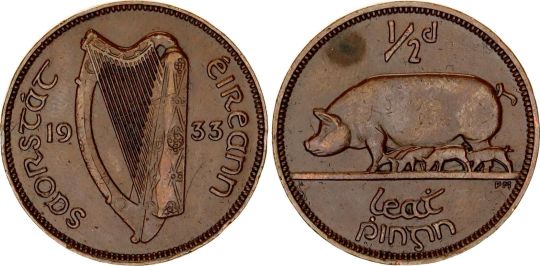
What with bulls, chickens, hares, horses, hounds, pigs, salmon and stags, the pre-decimal Irish coinage is a good inspiration for some sort of fantasy currency.
But that's another post, for another day.
#food and drink#St Patrick's Day#Irish cuisine#Dublin coddle#corned beef or boiled bacon#pigs and cattle in Ireland#The Cattle Raid of Cooley#Youtube
561 notes
·
View notes
Text
Thinking a bit more about Megalopolis (see prev post). It's not really the case that the script is as disjointed or schizophrenic as my post makes it out to be. The central plot is pretty simple: an egotistical city planner has an ambitious and futuristic vision for redeveloping the city, and he butts heads with the Mayor and others who oppose him in this. He ultimately succeeds in building his utopian "megalopolis". Everyone is happy, the end.
And yet.
There's this... intense centrifugal force that prevents everything from cohering into a unified whole. It's like a puzzle where all the pieces are cut from the same picture, but upon closer inspection, no two pieces quite fit together. Or like that collection of nonsensical objects. A fork where the tines and the handle are connected by a chain. A watering can with the spout facing the wrong way. A quick glance leaves you confused, and that confusion is only deepened by further contemplation.
I think this is especially clear in the pseudo-intellectualism of the title cards, narration, monologues, and quotations/references:
Laurence Fishburne does this heavy-handed narration at the beginning and end of the movie (and several random points in between). And there are these associated title cards that look like they were made by applying an "Ancient Rome" theme to some PowerPoint slides. "Or will we too fall victim, like old Rome, to the insatiable appetite for power of a few men?" My brother in Christ, you are making a movie where the hero is named Cesar, and the happy ending is when he successfully pulls a Robert Moses. This is not a story about power corrupting or good intentions going awry. What are you doing???
Cesar Catilina interrupts Mayor Cicero's speech (where he is introducing a plan to build a casino) in order to lay out an early plan for "megalopolis", which is an ambitious and long-term alternative to the (short-term) casino plan. He prefaces his megalopolis pitch by reciting the Hamlet soliloquy. What exactly does Coppola think "To Be Or Not To Be" is about? He must thinks it means, "I am a dark and brooding bad-boy intellectual", since it's hard to see how "I'd like to kill myself, but I fear death" fits into an argument about the importance of long-term thinking in urban planning.
Cesar says several negative things about "civilization". "[Imagine] humanity as an old tree with one misguided branch called civilization... going nowhere." (Shot of notebook shows an illustration with 'war' and 'cruelty' offshoots from said branch.) "Emerson said the end of the human race will be that we'll eventually die of civilization." (Note: unsourced, probably fake quote.) "Civilization itself remains the great enemy of mankind." Umm... you're an urban planner! You're doing a high modernism. What exactly does it mean for you to call civilization the enemy? Is "megalopolis" somehow anti-civilization because it looks like a Georgia O'Keefe painting instead of a bunch of straight lines and right angles? Will the "war" and "cruelty" branches wither and die when buildings have labia?
Also, there's this amazing line read that completely inverts the meaning of a fake Marcus Aurelius quote (the quote was attributed to him by Tolstoy but is not actually something he said). "The object of life is not to be on the side of the majority, but to escape... finding yourself in the ranks of the insane." Why did you put in that pause??? Fake Marcus Aurelius is turning in his grave! You're supposed to be fleeing FROM the ranks of the insane! I suppose this isn't really inconsistent with the characterization of Cesar, it's just such a fucking batshit thing to say.
All of the cargo-cult intellectualism listed above could perhaps be excused if the vision that the film is supposedly about had any content whatsoever. Or, alternatively, if the movie was about something more substantive, and the vacuous megalopolis vision took place off-screen in an epilogue, like the "happily ever after" of a children's story. But no! The movie repeatedly interrupts the plot to grab you by the shoulders and scream in your face: "I have a vision! For the future!". And then--now that it has your undivided attention--it shits the bed like a man who has just polished off an entire bag of sugar-free gummy bears and washed them down with a fistful of Ambien:
"Conversation isn't enough. It's the questions that lead it to the next step. But initially, you have to have a conversation. The city itself is immaterial, but they're talking about it for the first time. And it's not just about us talking about it. It's the need to talk about it. It's as urgent to us as air and water."
"Mr. Catalina, you said that as we jump into the future, we should do so unafraid. But what if when we do jump into the future, there is something to be afraid of?" "Well, there's nothing to be afraid of if you love, or have loved. It's an unstoppable force. It's unbreakable. It has no limits. It's within us. It's around us. And it's stretched throughout time. It's nothing you can touch. Yet it guides every decision that we make. But we do have the obligation to each other to ask questions of one another. What can we do? Is this society, is this way we're living, the only one that's available to us? And when we ask these questions, when there's a dialogue about them, that basically is a utopia."
After the revolution, we won't have conflicts anymore; we'll have dialogue instead. We won't have a need for the "jobs" and "sanitation" of "now"; we'll have the "imperishable" "dreams" of "forever". We won't have problems that need solving; we'll all be too busy asking each other questions. Now, if everyone could just shut up and get the hell out of the way and let Cesar implement his vision, then "everyone" will soon be "creating together, learning together, perfecting body and mind." A chorus of children's voices gradually morphing into Laurence Fishburne's, chanting, "One Earth, indivisible, with long life, education and justice for all." It's eschatological anti-politics made entirely from cotton candy. Please, for the love of God, stop making Adam Driver monologue at me! Let's get back to Aubrey Plaza stepping on horny fascist Shia LaBeouf!
The incoherence of Megalopolis's vision is compounded by how anachronistic its depiction of our fallen world is. There are some half-hearted (and ham-fisted) gestures in the Clodio sub-plot towards the dangers of Trumpian populism, but the script was first written in the 80's, and it's extremely obvious that Coppola is writing about New York City in the preceding several decades. The city's finances are in dire straights. (There's literally a "Ford Tells City: Drop Dead" reference!) The city is full of slums, the streets are full of crime, and the elites are all decadent. (For Coppola, decadence means that ladies are doing cocaine and smooching each other in the cluh-ub.) The main character is Neo-Roman Robert Moses, and the conflict of the film is about urban renewal. In case you, like Mr. Coppola, have not been made aware, slum clearance is not a major political issue in 2020's Manhattan.
Two thirds of the way through the movie, a falling Soviet satellite provides a deus ex machina, blowing up the financial district and clearing space for megalopolis to take its place. Ironically, a previous attempt to produce the film came to its abrupt end when two planes flew into some buildings in the financial district. Perhaps you heard about it. The financial backers of the film at the time considered Megalopolis's plot a bit too close to current events for comfort and withdrew their support.
But Coppola's depiction of Manhattan was already decades out of date by then. Moses stepped down in '60. Jacobs' book railing against urban renewal came out in '61. The Power Broker came out in '74. One presumes popular opinion of Robert Moses soured in the following years. The crisis of the city's finances that peaked in '75 was over by '81 when NYC balanced its budget and reentered the bond market. The crime wave of the 70's and 80's had receded by the year 2000. The demand for housing in NYC proper is as high as it ever has been, and it's only getting higher. Megalopolis imagines America as an incoherent mishmash of several decades of mid-century NYC, dressed up in the toga of the late Roman Republic, calling out for (Robert) Moses to part the slums and take us into a promised land that is literally beyond any description, and whose only concrete feature seems to be glowing people-movers.
A Robert Moses with the power to stop time, at that!
Oh, did I forget to mention that part? Cesar discovers he has the power to stop time in the opening scene of the film. I forgot because it's literally irrelevant to the plot. Time stops a few times, and then it starts back up again, and the events of the film just plod inexorably forward. For a movie as temporally dislocated as Metropolis, perhaps that's just as well.
153 notes
·
View notes
Text
dark is my favorite show of all time but if there is some messy time stuff i just really hope it makes sense with all the previous scenes bc you CANNOT just whip out time travel outta nowhere it has to be so incredibly planned
Me watching people get upset about potential time f*ckery stuff in Stranger Things like my favorite show throughout the entirety of quarantine (that I also spent several months rewatching to sort through) wasn’t Dark:

#my friends and i just did a powerpoint night and mine was ranking time travel shows and movies#dark was obviously 1 russian doll s2 was last bc WHY THE FUCK DID YOU JUST WHIP OUT TIME TRAVEL OUT OF NOWHERE#i kinda hope st doesnt do actual time travel#i always interpreted all the clues as a reference to the upside down being stuck in 1983
50 notes
·
View notes
Text
Taylor Swift and the Truman show
"Well, for me, there is no difference between a private life and a public life. My life... is my life, is the Truman show."
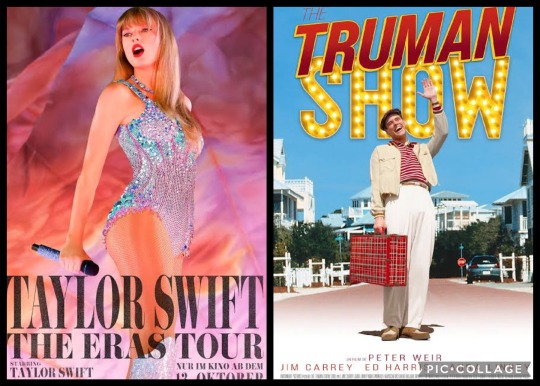
Tied together with a smile
Taylor is currently at the peak of her career as she's now breaking her own records and reaching a level of fame only seen by the greatest such as the Beatles and Michael Jackson. Yet underneath all that success is a layer of conflict due to the discrepancies between her private and public life. With closer inspection it is clear to see that Taylor has left a trail of breadcrumbs that reveal that she has been queer since the beginning of her career. The ‘love struck and boy crazy’ version we first saw of Taylor was supposed to be a temporary step in her career during the fearless era, but through a series of unfortunate events she has spent the entirety of her career in the closet.
Now with the ending of the rerecords and eras tour in sight, Taylor has begun to reveal the cracks in the facade of her public persona so that we can see who she really is underneath. Her performance of 'delicate' on the eras tour is a visual representation of this process. Throughout the song we slowly see cracks forming in the glass, one at a time until at last there are so many cracks the entire stage shatters into a million tiny little pieces.
But what causes the cracks?
Taylor.
And it’s all inspired by the Truman show…
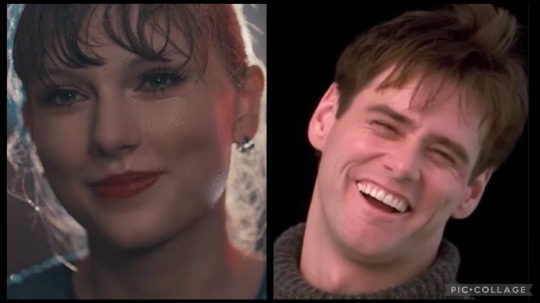
Daily life
In the mirror
The first time you watch the Truman show, the focus is on Truman and his journey. He lives a normal life in Seahaven with his wife Meryl, has a successful career in finance and spends his free time with his best friend Marlon. There are small cracks in the facade of his picture perfect life from the beginning, but halfway through we reach a turning point as it becomes clear that Truman is also the star of a 24 hour reality TV show that broadcasts his life to the public without his knowledge. Every move he makes is being observed by the outside. And then when you get to the end of the movie you start to realise that not everything you saw was as it seems.
Taylor has several well known Easter eggs that reference the Truman show, but with further investigation we can discover that she also relates to his story on a personal level. In the song 'mirrorball' Taylor explores the theme of wearing a mask that reflects back what the viewer wants or chooses to see. Just like an iceberg, if we stop at the surface level of what we see of Taylor’s personal life, we’ll miss the depth of what lies underneath. Many of her music videos echo Truman's story in a way that leaves her truth hiding in plain sight.
Good neighbours
Truman’s day starts with a moment of quiet reflection as he gazes at himself in the mirror before greeting his neighbours on his way to work. “Good morning! And incase I don’t see ya, good afternoon, good evening and good night!” His iconic catchphrase is repeated each day. Even though Truman’s the only person in Seahaven who isn’t a paid actor, he’s having the same scripted interactions day after day. His life is centred around acting the part, just like everyone else. The only difference is that he’s wearing a mask to hide how he really feels underneath. Truman's day is very reminiscent of the groundhog day trope to highlight how scripted and repetitive his life has become.
Taylor's life in the public is very similar to Truman's now that she can't go anywhere without being recognised. The once unfiltered teen that was vocal on myspace has become selective and restrained with what she shares online after years of having her life picked apart for all to see. The chasm between Taylor's public and private life has grown to the point where removing the pop star mask will impact her career.
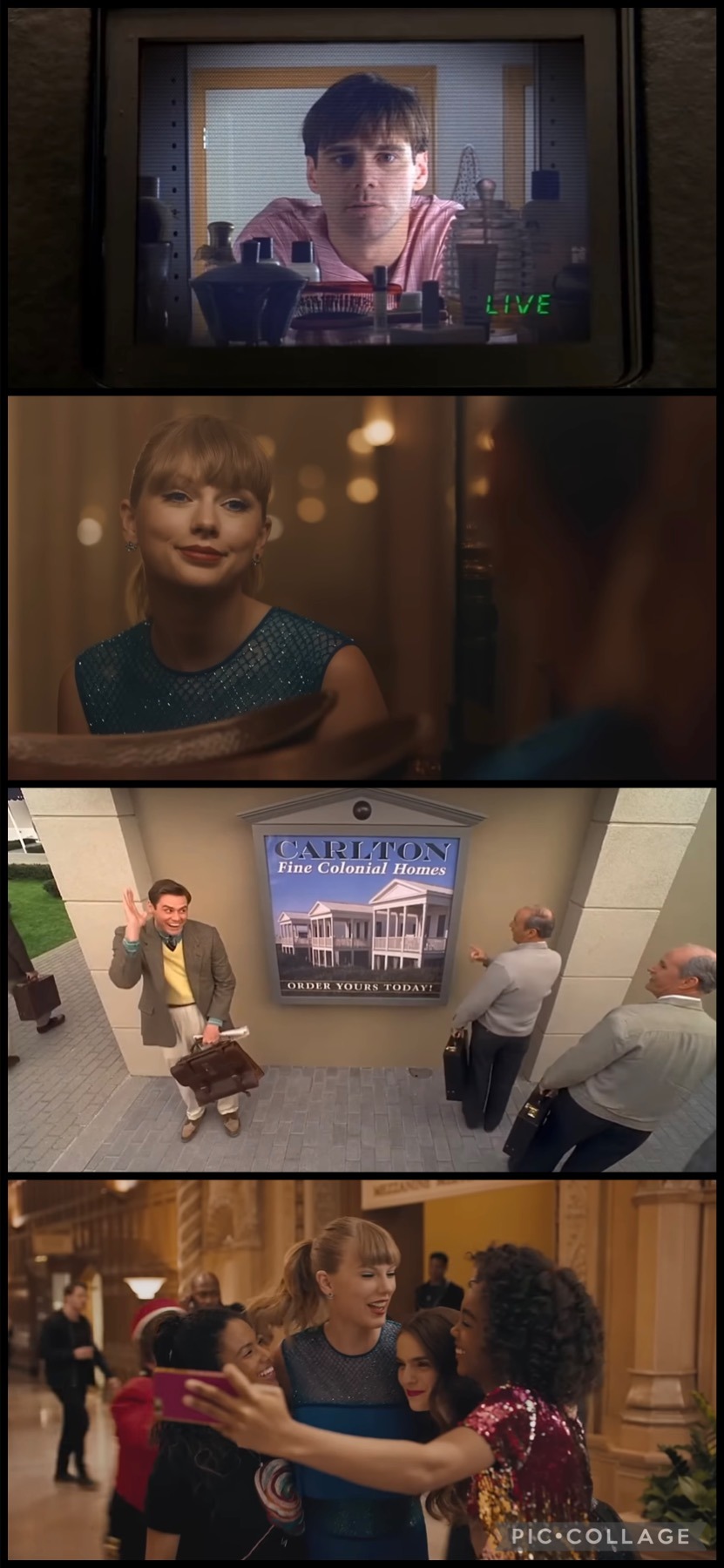
Product placement
The Truman show is sustained through the revenue generated from the products advertised on the show. The first time we meet Truman's wife Meryl is when she's showing him the latest gadget she's picked up from the store on her way home from work. This feels subtle at first, but as more products are mentioned throughout the show it becomes more obvious and the advertising feels more akin to a late night shopping channel. We start to see that everything from the decor, wardrobe and food they eat is for sale. Every aspect of Truman's life has become commodified to generate revenue and to keep the show running.
All the little Easter eggs throughout Taylor's 'lover' music video seem like personalised advertisements now that we’ve seen that they advertise memorabilia on the Truman show in a similar way. However, within her career marketing is an integral facet of Taylor's career. "When you realise the rules of the game you're playing and how it will affect you, you got to look at the board and make your strategy. But at the same time, writing songs has never been a strategic element of my career. But I'm not scared to say that other things in my career, like how to market an album, are strictly strategic."
Hidden in plain sight
It's not obvious at first that Truman and Marlon have found a way to communicate with each other honestly whilst remaining undetected. Truman is often sharing his plans of going to Fiji to get away for a while. However, when he's really planning to leave Truman says "Just between you and me Marlon, I'm going away for a while." This allows the viewer to believe that it's just another wishful thought about going to Fiji, but said in a way that lets Marlon know that he is serious this time. Beer seems to be both another advertisement and a signal to indicate that he's been sent by the director. "It's all true. It's all real. Nothing here is fake. Nothing you see on the show is fake. It's merely controlled." Later on when we're shown that the director is feeding Marlon his lines, it's clear that he has always tried to be as honest as possible with Truman.
Taylor mentions wine frequently through her discography. Perhaps this is to show us that her truth has become so watered down within her lyrics that she lost sight of who she was before. Taylor has changed up pronouns and added hidden meaning to words and phrases mentioned frequently throughout her discography. Through this process she has become incredibly skilled at seamlessly adding connections to multiple muses within a song.
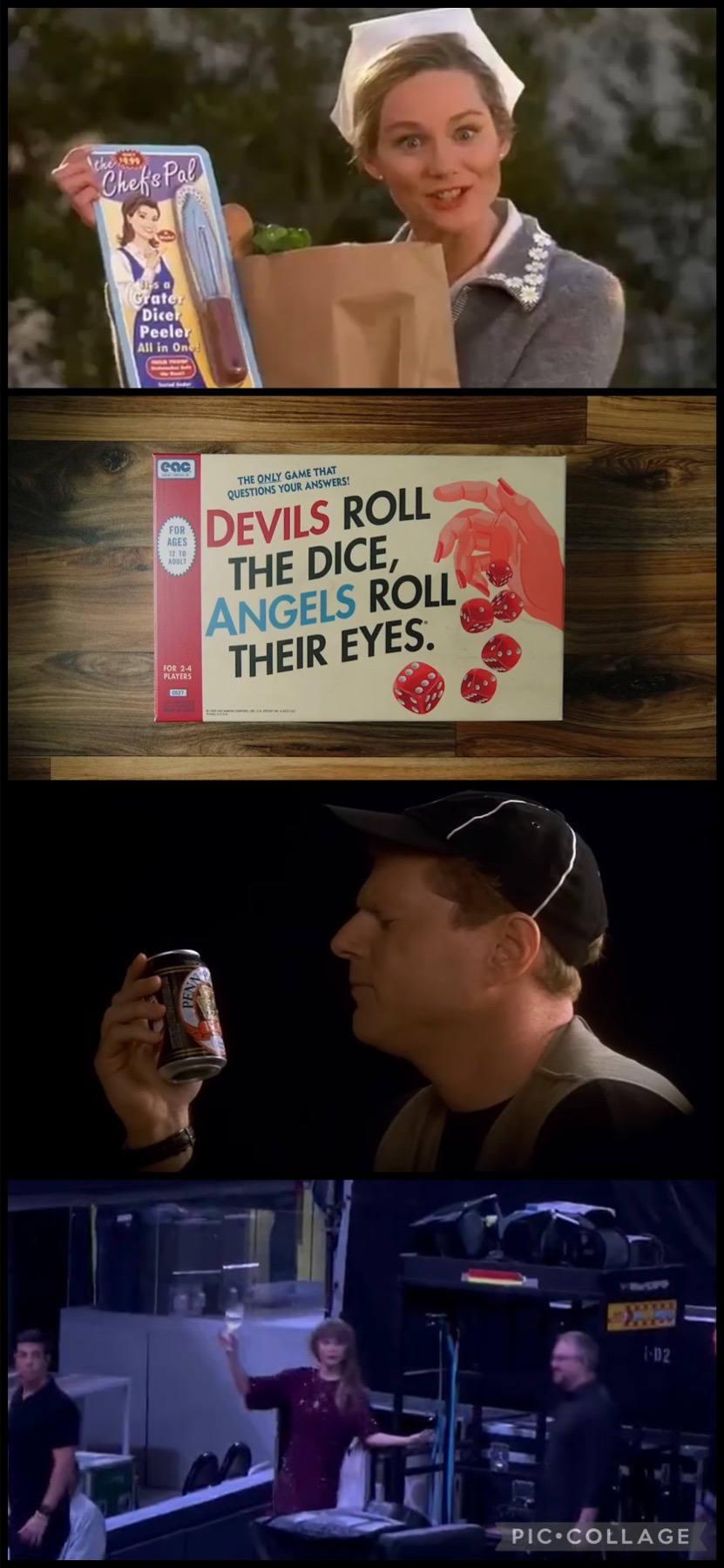
The first crack in the glass
Everything changed
From what we can see, Truman has known from the beginning that he's been the central character within his town to some degree. Truman appears to be fairly content with the life he had created for himself, despite the confinement he felt (he hasn't known any different). This all came to an end when Truman realises that his father is still alive. This changes everything as the first cracks in the facade of his seemingly perfect life become visible.
Intercepted
A very similar experience happens with Taylor in the 'delicate' music video. We can see that this interaction leaves Taylor more aware of those around her. "People often greatly underestimate me on how much I'll inconvenience myself to prove a point…" In her real life there are several events we could attribute to being her motive for change including the sale of her masters (ownership of her first six albums) to investors, a relationship changing or something that affected her reasons for remaining closeted.
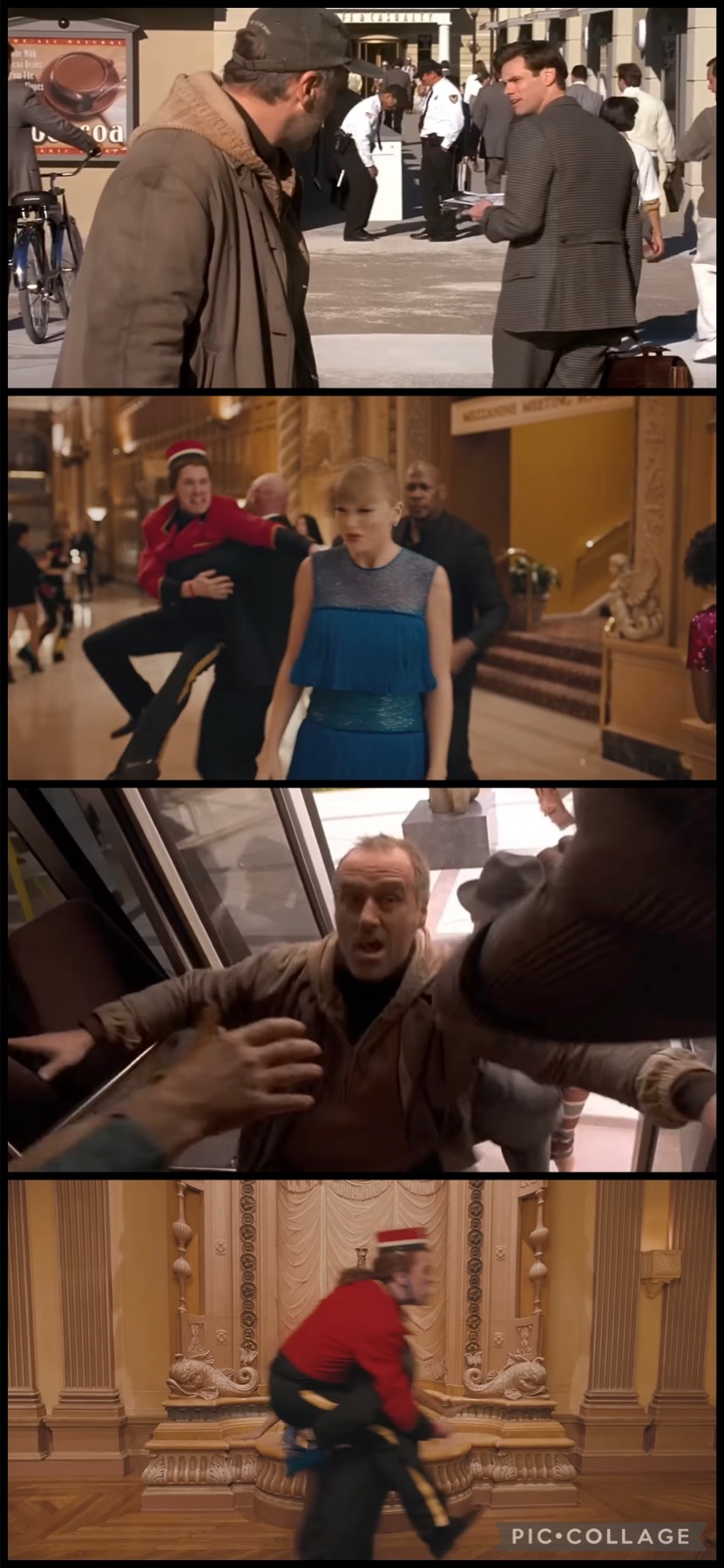
Chance of rain
We see Truman sitting at the beach reflecting on how his father drowned when he was a child. As it starts raining he gets up to leave, only to reveal that there's just enough rain to encourage him to get up and go home. We slowly start to see how manufactured these scenarios are. Throughout Truman's week there are planned situations that are designed to test for any changes in his behaviour, like if he's still petrified of the water. These actions reveal just how much pressure they've placed on Truman to prevent him from leaving. It leaves us asking how much free will does he truly have with his choice to stay or go? At this point it feels like the choice has been made for him.
Taylor recreates this rain scene in the 'lavender haze' music video. We see her sitting at the end of the bed with a rain cloud over her head while her lover is asleep. We can infer that Taylor is showing us that she identifies with how isolated Truman was feeling in this moment. Taylor has given up a lot in her personal life for the success of her career, but how much of that was her choice to do so?
Reflecting on the past
Truman goes back home and opens up a trunk full of childhood memories. He's looking at photos of his family while trying to make sense of what he saw with his father still being alive, and the implications of that. This is the beginning of Truman questioning how far those in his life have gone to keep up this lie. If his father is still alive then what else have they lied about?
In the 'cardigan' music video we can see that Taylor is reflecting on her past in a similar way, but this time through playing her piano. Both 'the tortured poets department' album and summation reveal a similar theme of reflection, but with an honest exploration of the agony that comes along with it. "Nostalgia is a mind's trick." This album is a reflection of her career, highlighting the toll it's taken on her personal life along the way.
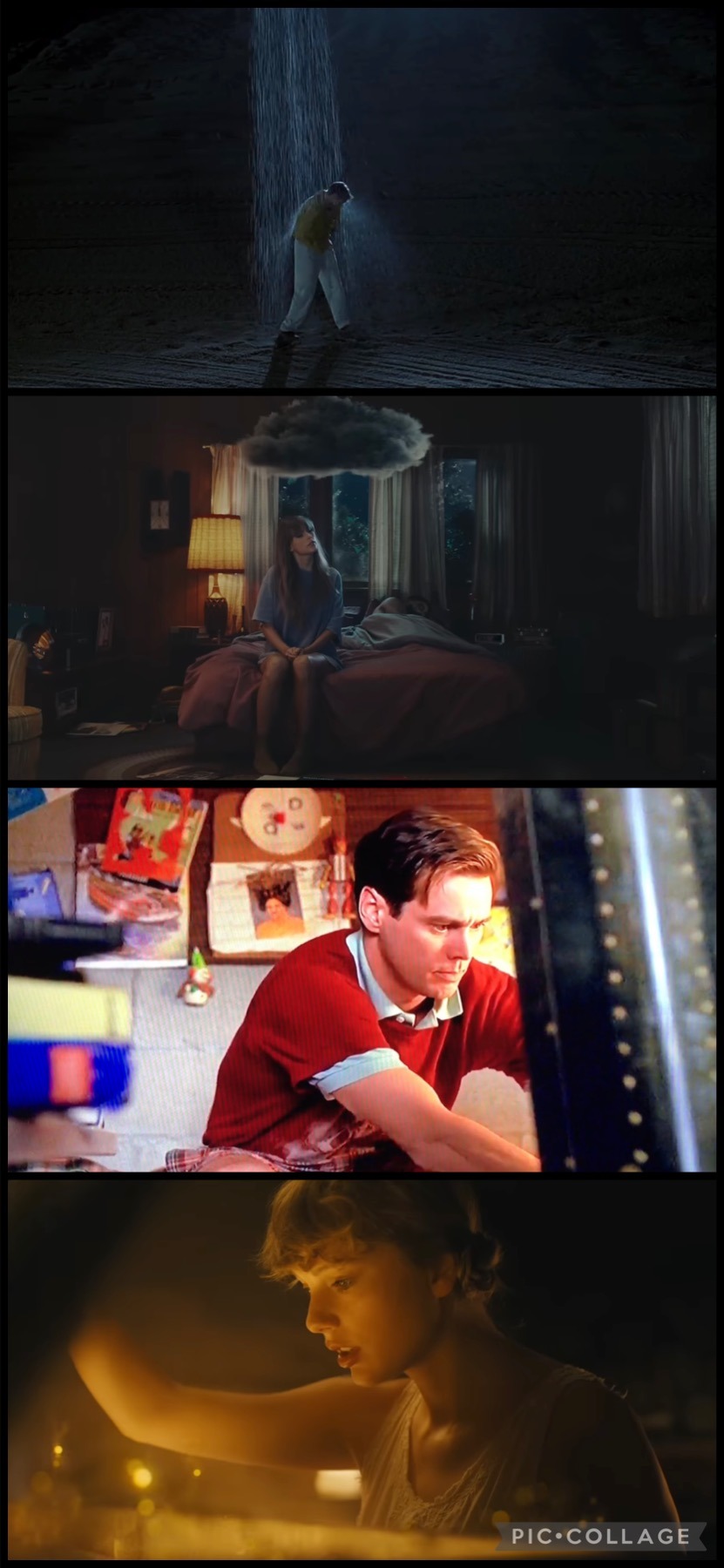
The one that got away
Love triangles
As Truman pulls out a red cardigan from a plastic bag, we get flashbacks of his high school years. His attention is torn between Sylvia and his current wife, Meryl. During a moment alone with Sylvia they sneak away together, but she appears anxious knowing they don't have much time alone. They share a chaste kiss before Lauren gets dragged away by a man claiming to be her father. She hastily reveals that everything Truman knows about his life is a lie, that it's all done for him and that everyone is watching him. Her father claims that she is just having an episode and reassures Truman by saying that he's taking her to Fiji to receive more help. Sylvia's interaction with Truman is the catalyst for her character being removed from the show. This reveals that even in high school Truman's love interest was planned out for him, despite his attraction to Sylvia.
Taylor wistfully talks about the fictional teenage love triangle during the 'folkmore' set. She describes how James is longing for the one that got away, which seems to contain an element of truth from her past. In 'imgonnagetyouback' she talks about how she won't stop fighting until they're back together again. I tend to lean more museless, with the queer side of Taylor being the one she's fighting for most of all (and with any other muses being secondary to that). If we consider the love triangle from that perspective we can see that the muse she lost was a cherished piece of her history, but the part of herself she lost along the way is the one worth risking everything for to be able to feel whole again.
It's all in the details
Through the development of Sylvia's character we start to see the significance of the colour red. To the viewers at home it is a symbol of heartbreak and loss, and that Truman's attachment to the cardigan is based on his feelings for her. But for Truman we can assume that it is more like a symbol of hope that he might finally be free one day. Other symbols we see her wear include a red seahorse pin (their school mascot) a green bauble bracelet and the 'how's it going to end?' badge. When he reads the badge in the library he quietly admits that he's been wondering that too. This is the earliest insight we witness of Truman not being fulfilled by the life that has been scripted for him.
Many of Taylor's Easter eggs are a reference to the Truman show. These include Sylvia's rose shirt, the eras tour poster, 'karma' door, the song 'how did it end?' and many of her music videos. In the 'lover' music video there's also the bauble earrings, her lover has a seahorse patch on his jacket and the board games are Taylor Swift themed. These all seem like amusing connections until you pick up on the deeper correlations to Truman's story.
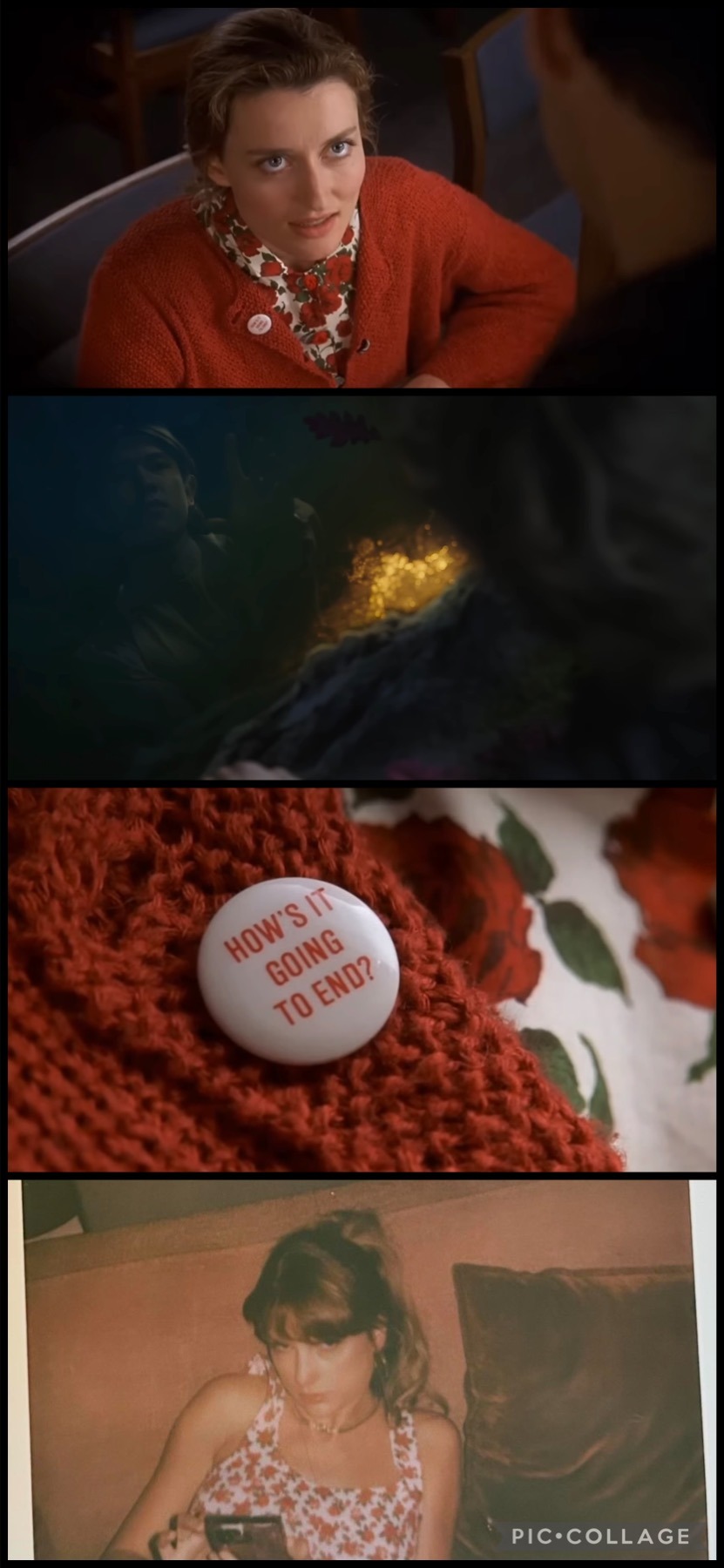
Cardigan
After Sylvia left, all Truman is left with is her red cardigan. Sylvia begs Truman to come and find her, but as the flashback ends we find out that Truman didn't follow her to Fiji at the time because his mother got really sick. Instead he settled down and married Meryl, while living with the loss of what could've been with Sylvia. After Truman finishes reminiscing about the past, he slyly reveals that the badge is still pinned onto the cardigan. This reveals that his attachment is not so much to Sylvia now, but to the idea of leaving one day so that he can be free to live his life authentically.
Taylor's song 'cardigan' is one of her most significant references to Truman's story. In the 'cardigan' and 'willow' music video we can see that it is a symbol of the memories she carries from her past and a reminder of what she's left behind along the way. The stars on the cardigan hold a similar sense of hope, just like Truman's pin. "You drew stars around my scars, but now I'm bleedin' 'cause I knew you." This imagery evokes the pain of carving into skin to emphasise the heaviness that comes with sitting with the memory of what could have been.
The bar
After Truman's flashback scene we get a glimpse of commentary from a bar as they're watching the show. This juxtaposition reveals how watching the Truman show is an ordinary occurrence during their daily lives, just like many of us tune in to watch the eras tour on a grainy live stream. The 'delicate' music video ends with Taylor walking into a very similar bar to meet up with a secret admirer, but it remains unclear which one is sitting there waiting for her.
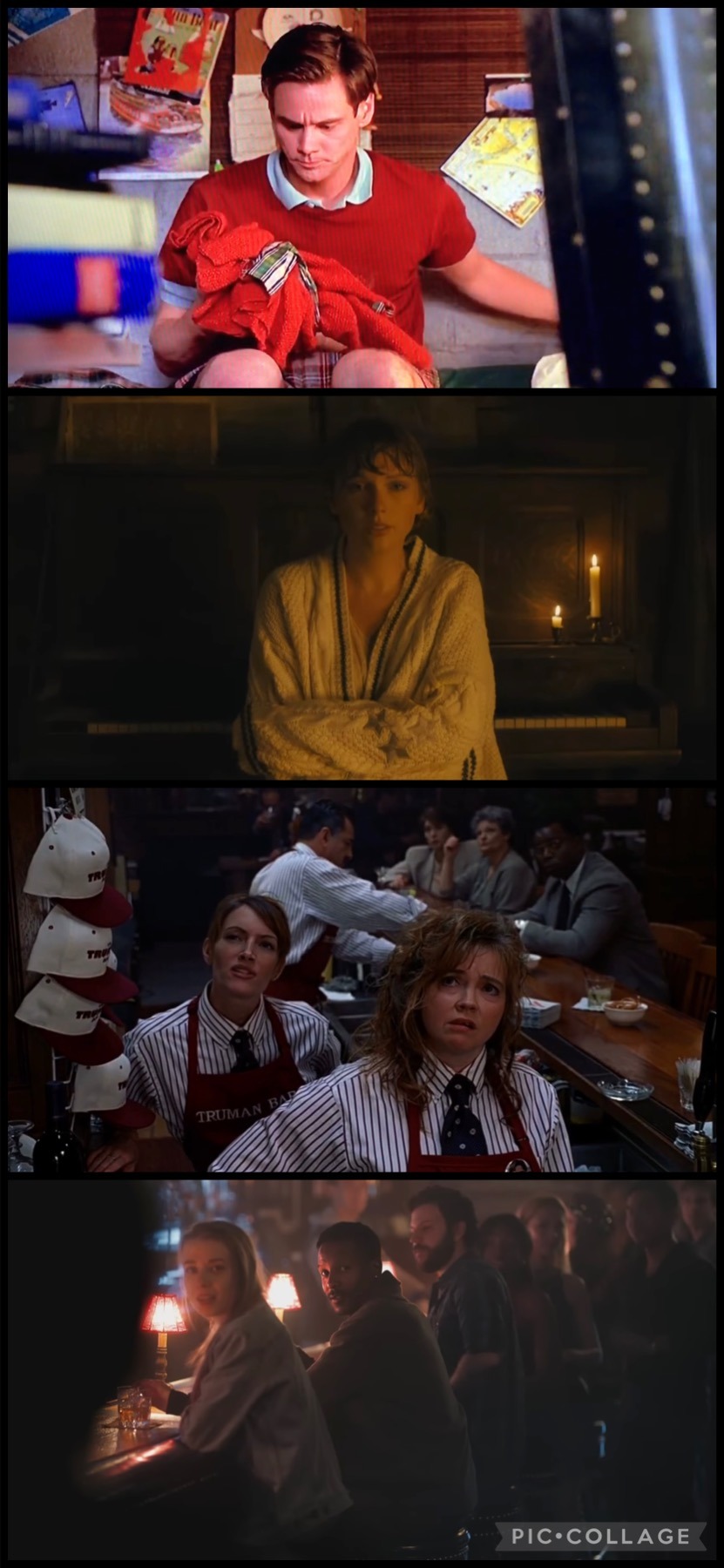
Cracks in the facade
The one worth fighting for
Once the nostalgic moment is over we see Truman holding a photo frame of his wife Meryl. It seems like a loving gesture at first, until he turns it around and opens it up to reveal that he's been collecting a collage of facial features in an attempt to recreate a portrait of Sylvia from memory. This contrast between the memory and Truman's reality exposes how much he has sacrificed along the way by staying in Seahaven. Holding onto the cardigan, pin and picture of Sylvia is an act of defiance when everything else in his life has been decided for him.
Taylor left everything behind when she left her old label, including the ownership of her first six albums. She was not given the option of buying them back without having to commit to producing another album for each one she earned back. Unfortunately this is something many in the industry have had to endure. With hindsight we now know that Taylor was able to rerecord her past albums with added vault tracks, but at the cost of reliving her past. Taylor's back tattoo in the 'you need to calm down' music video conveys that the memory of her life's work was the only memento from her past that she was able to take with her.
Glitches
As Truman is driving to work again, his car radio starts glitching and he ends up on a channel that contains the directions everyone else is hearing in preparation for his arrival before work. From our point of view all of these mishaps are new, but there would have been flaws like this in the system a lot longer than that. But if Truman has known he was the star of the show from the beginning, what was the point of the movie? To reveal the truth to us, and the viewers at home, slowly over time. And to give us a chance to understand his point of view as we prepare for his departure.
We have seen plenty of glitches like this occurring in Taylor's performances on the eras tour, and many of these have been intentional (such as the screens glitching and swallowing bugs). This draws our attention to the cracks in her pop star facade, revealing glimpses of the person she is underneath. And just like Truman, she's giving us the opportunity to slowly adjust to the changes she plans to make in the lead up of what's to come.
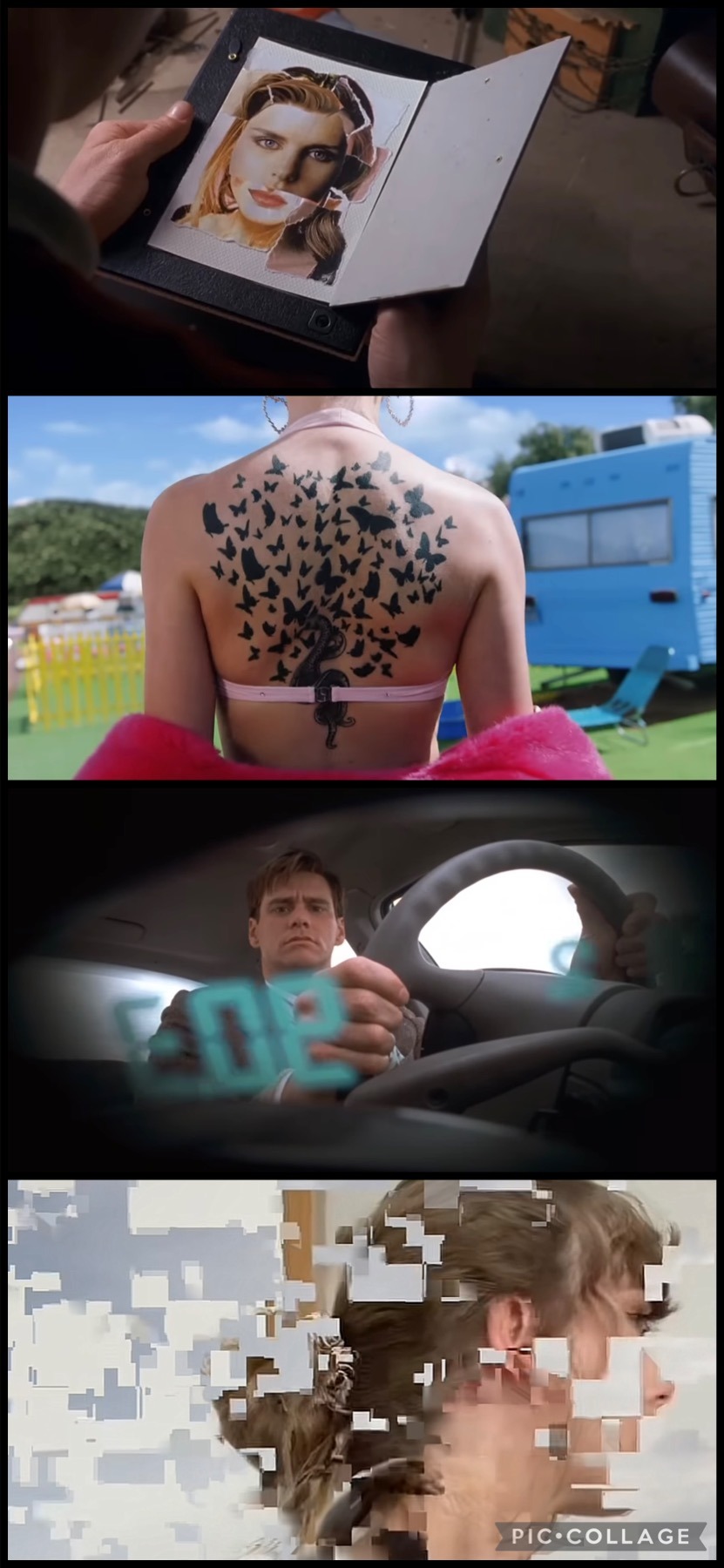
Breaking down
Truman appears to be overwhelmed as he starts to reveal just how much of the town he lives in is choreographed around him. This is the start of Truman escalating his reactions to create more cracks in the facade, in the hopes that more viewers begin to see the challenges he faces living in the spotlight.
This purposeful increase in revealing more of the inner versions of themselves is exactly what Taylor is portraying during the 'delicate'' performance on the eras tour. Slowly allowing us to see them as normal people behind the larger than life character they had become in the spotlight. The way Taylor begins creating the cracks on purpose allows us to understand that what's to come is purposely being exposed.
Life's a stage
Truman attempts to enter an elevator, only to discover that it's fake. This is a big step towards seeing what's behind the magician's curtain the first time you watch the movie. When you watch it again this is the point where you start to discover how complex the set of Seahaven has become over time to keep the show running. Many elements of the town act as rest stops and exit points for the actors away from Truman's view.
Taylor pushes down the walls of the bedroom during the 'lavender haze' music video, revealing that the relationship had always been a facade to begin with. Interestingly, this is the only music video that we see begin after the clock ticks over to midnight. Just like Cinderella returns to her original state at midnight, so too does Taylor. This correlation to Cinderella's story implies that the lavender haze we see hidden beyond the walls of the bedroom is the most honest version of Taylor underneath everything else. Lavender is heavily used as a subtle reference by queer people, especially lesbians. Koi fish can be seen in all of the 'midnights' music videos except for 'karma'. They are well known for swimming against the stream, something many neurodivergent people experience feeling. Koi fish are often associated with the yin and yang symbol and together they symbolise balance, courage and perseverance, much like the song 'you're on your own kid'.
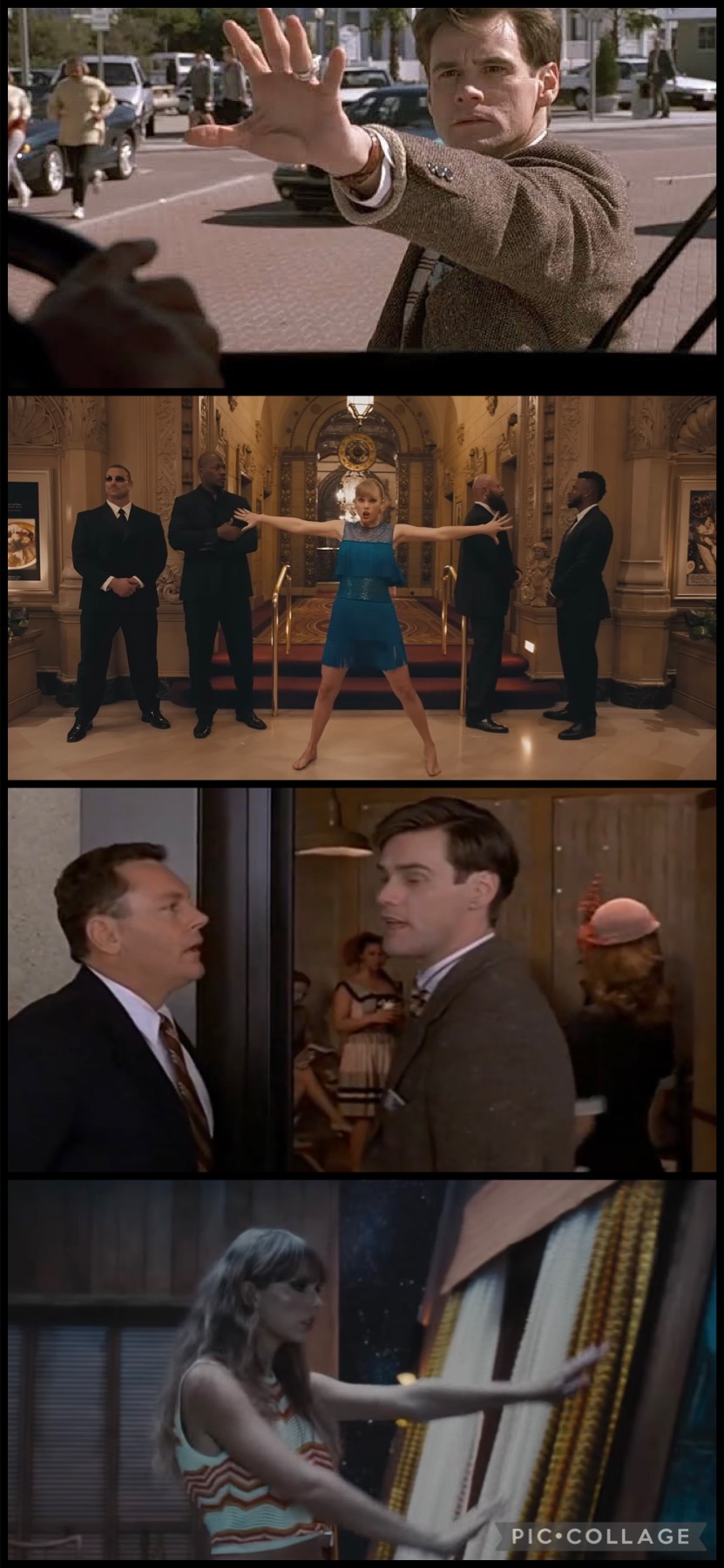
Turn up the heat
Invisible
As he seeks out his best friend Marlon for help, we learn that Truman feels concerned that he is being followed or set up for something. Marlon appears calm until Truman mentions that his father is still alive. It appears that this detail may not have been disclosed to the public. Truman demonstrates that everyone in the store is so preoccupied with fulfilling their roles that they will ignore him at all costs. This is a very unnatural reaction and wouldn't be a new discovery for Truman.
The bodyguards in the 'delicate' music video react in a similar way, just like the guards at Buckingham palace are trained to stay focused and ignore distractions. On an emotional level, this behaviour feels like no one is interested in you unless you're wearing the mask of who they expect you to be. "The actors were hitting their marks." Many neurodivergent people experience this disparity between who they are on the inside and the curated version they present for others to see. This act of reflecting back what the viewer wants to see is often done out of necessity to remain safe, but leaves the inner and truest version of oneself feeling invisible. "I want you to know I'm a mirrorball. I'll show you every version of yourself tonight." Unfortunately, you have to participate in their performance if you want to be seen, but the version you they see isn't who you truly are on the inside.
Just for you
After an evening together, Truman is left alone when Meryl offers to take his mother home. As the TV is playing in the background we hear how the presenter is incredibly specific when describing the next episode of 'show me the way to go home'. "Where we learn that you don't have to leave home to discover what the world's all about. And that no one is poor, who has friends." This is a form of subliminal messaging telling Truman that he's better off staying home, implying that there's no point trying to leave because they will prevent him every step of the way.
In the 'lavender have' music video Taylor is watching a similar weather station, but when she gets closer she pulls the screen apart to reveal that there's nothing but space and koi fish behind it. This likeness to Truman's story presents an intriguing insight into the obstacles and road blocks Taylor has faced as a queer woman throughout her career. The koi fish behind the screen also highlight Taylor's determination to challenge the status quo and how she has been working towards much needed change within the music industry.
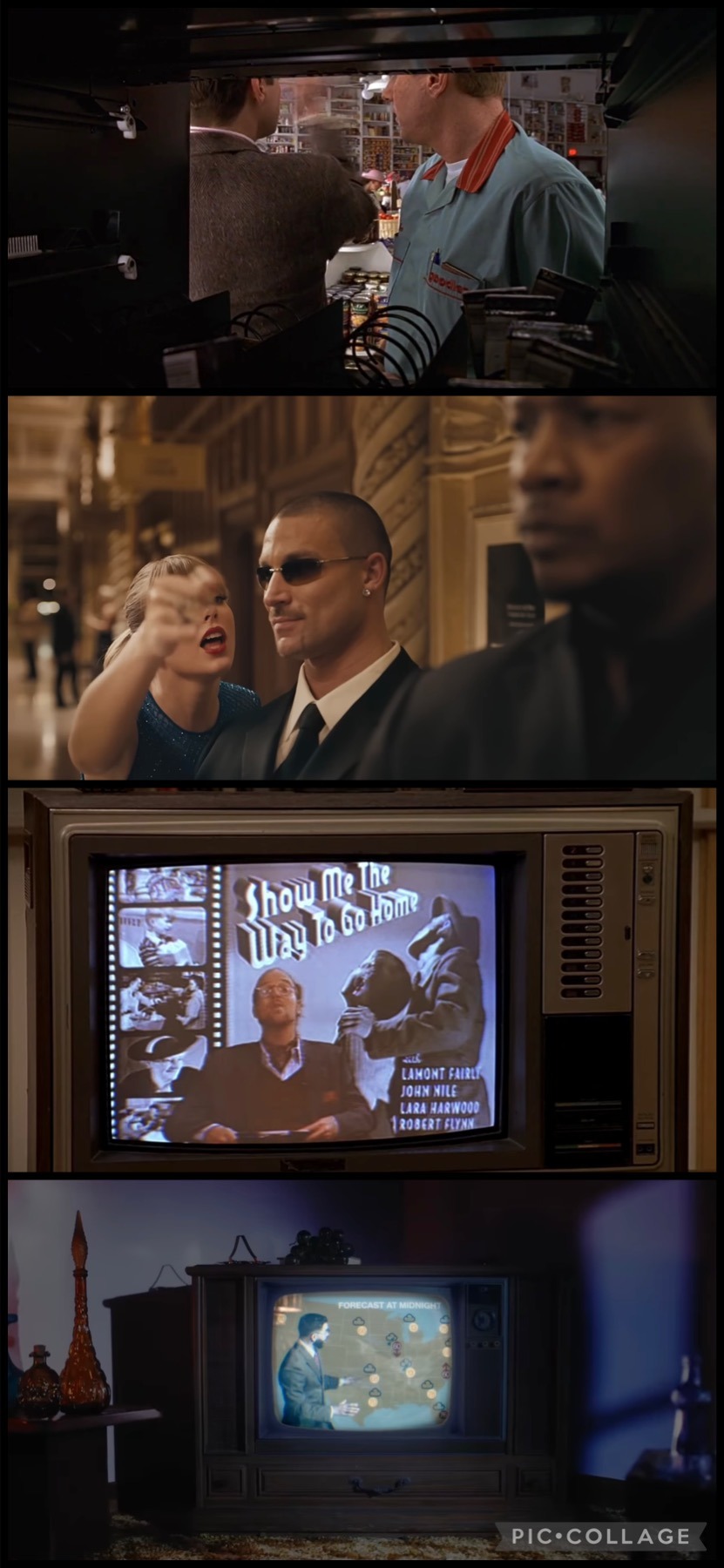
I do not
Truman is flipping through a photo album full of photos of his family and life with Meryl. His mother stresses her desire for grandkids while she's still alive. Truman continues to look through the album after they leave. The final straw for their relationship comes when he reveals that Meryl had her fingers crossed when they got married, implying she was never fully committed from the beginning. Looking through the photo albums seems to be a weekly routine when his mother visits, so we can assume this wasn't the first time Truman's noticed this detail, the only difference is that he's pointing it out now because it's the next step in his plan to leave Seahaven.
Many of Taylor's music videos emphasise the facade she has played into of the life society expects her to maintain. This has become more evident than ever with her current relationship with Travis Kelce. They want her to fulfil the 1950's lifestyle as a happily married wife with two children, a house with a white picket fence, to stay home each day as a housewife and to serve her husband when he gets home from a long day at the office. 'The man' music video highlights the disparity between these expectations and the lifestyle men are usually celebrated for, so that we can understand that this isn't the life she wants for herself.
Undressed
After Truman attempts to confront his wife about the photo, he follows her to work in his pyjamas. She works at the hospital and claimed to be doing a leg amputation from the elevator incident, a story they made up to explain what he saw the day before. When he locates her within the hospital the actors are forced to begin the procedure to keep up appearances.
Taylor was wearing a corset with a pattern very similar to Truman's pyjamas underneath her blue dress recently while out with Travis Kelce and his friends. Everyone in the group was wearing matching pant and shirt sets, with Brittany Mahomes in actual pyjamas. This may have been a hint that Taylor's beginning to escalate the cracks in the facade of her pop star persona.
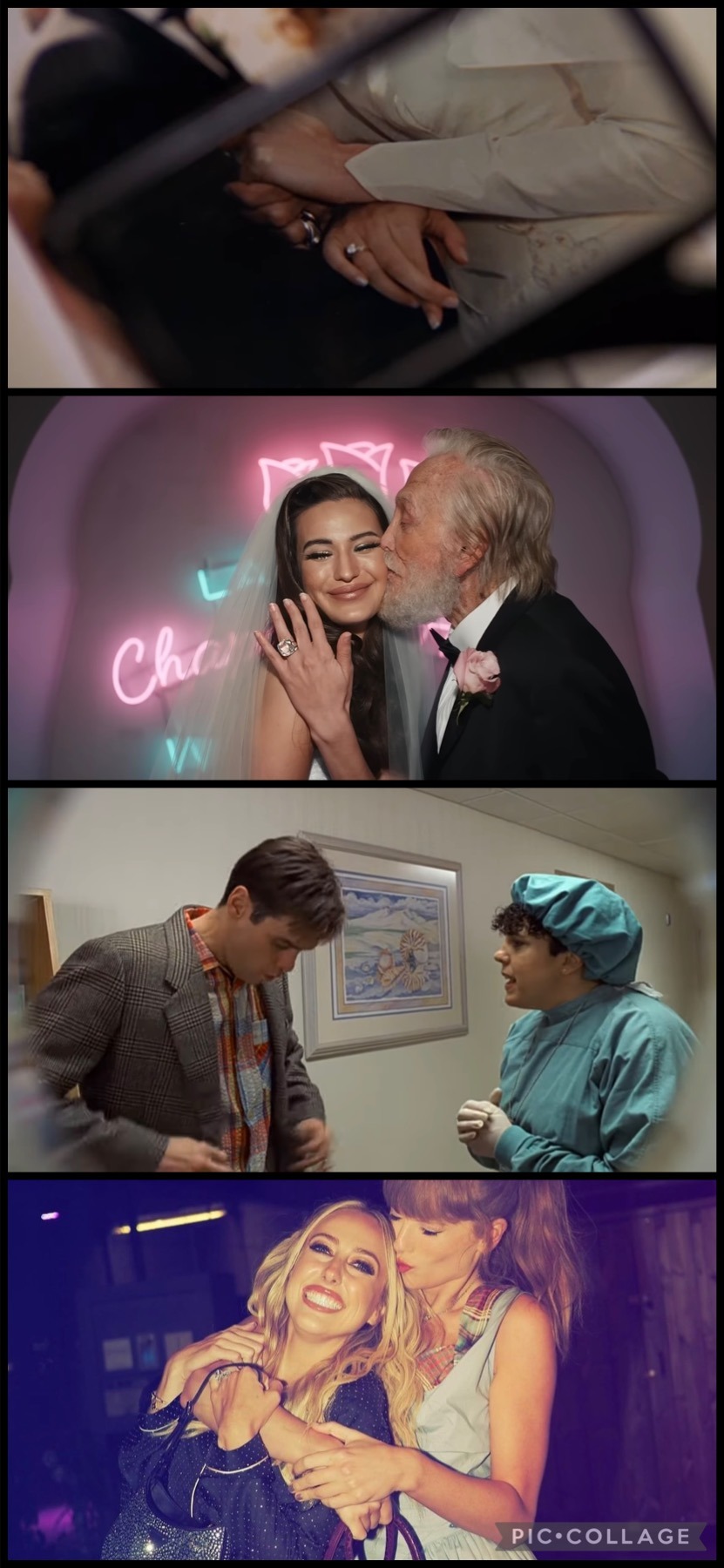
The failed escape
Predictable
Truman is sitting in his car when Meryl gets home from working at the hospital. When she gets in, he locks her in the car and attempts to leave town. "Blocked at every turn. Beautifully synchronised, don't you agree?" This is the point where he's revealing that he knows how predictable everyone around him has been, pointing out that the same three people keep going past on schedule.
Logically if Taylor knew what the roadblocks were before she left her old record label, she would have known how her opponents would retaliate after she left. "Blood's thick but nothing like a payroll." It seems likely that they were planning to sabotage her once she left, with her first album in particular. If they were predictable enough, Taylor could've had time to plan ahead to mitigate the damage done to her career. This could include holding back on releasing certain songs, which has now lead to the rumours of 'lover' vault tracks.
Just like clockwork
Truman begins to drive around the round about over and over again to highlight that he has figured out that the townspeople move around him like clockwork, but again this isn't new information to Truman. The director's attempts to prevent him from leaving are incredibly predictable and they always have been. Truman would have been able to pick up on this pattern when he was still in high school, if not earlier. "When you're young they assume you know nothing." The benefit of them being this predictable is that Truman could foresee their reactions and blindside them when they least expected it.
Taylor uses many clocks throughout her music videos as easter eggs and to draw our attention to time and dates that might be relevant in the future. One element of interest is the concept of routine and the predictability that comes with that. The arena in 'the hunger games catching fire' seems to be inspired by the Truman show as well. Katniss figured out that there are new threats in each segment that changed on the hour, ending with a lightning strike at noon and midnight. This kind of predictability allows one to plan in advance. Three years perhaps?
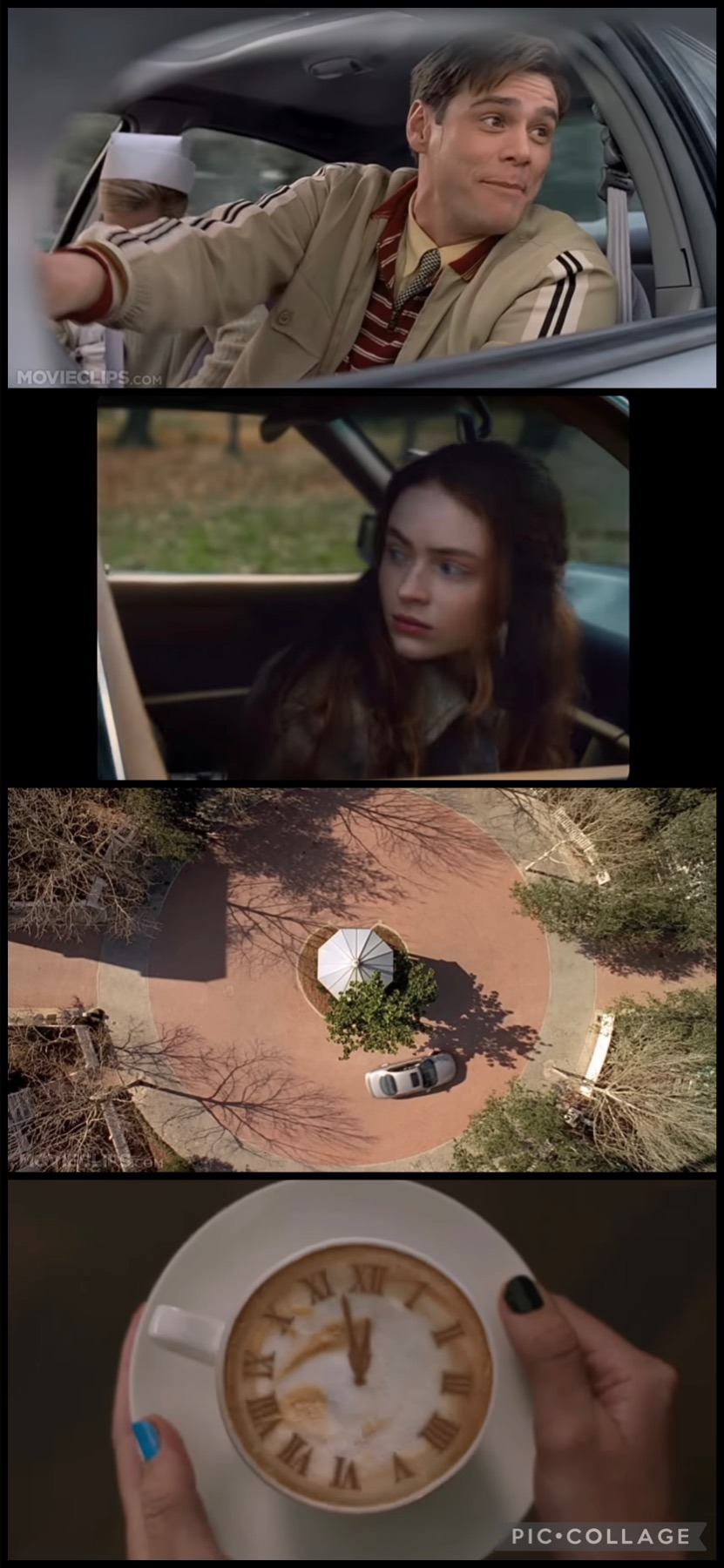
Planned to fail
After driving around in circles Truman claims that they're headed to Atlantic City, only to find out that the end of their street is blocked up with traffic. He concedes to going back home after all, just to announce suddenly that he has changed his mind. As Truman doubles back and attempts to leave for the second time, he discovers that the traffic jam had magically cleared up after they left. He was accurate in predicting that his plan to leave would be counteracted by some form of intervention. Truman's actions are forcing the director to reveal his hand, only to call his bluff and get further than the director expected him to. And despite her fear, Meryl is still putting on a performance for the camera here too.
It's a possibility that Taylor set up a similar scenario to unfold with the release of her 'lover' album. The contrast between the aesthetic and themes of the 'reputation' and 'lover' albums could have been done on purpose to blur the lines between the two in an attempt to mitigate the damage done from being sabotaged. Underneath the vindictive theme of 'reputation' was the romantic songs her opponents had been anticipating from the 'lover' album.
The bridge
Truman stalls at the bridge due to his fear of water but forces Meryl to drive across while his eyes are closed, willing to do whatever it takes to leave. "We're over the bridge!" he exclaims when they make it across. As Truman continues to escape, they are still faced with roadblock after roadblock. The escape plan eventually fails when the road is blocked because of a leak at the nuclear plant. They thank the officer for his help but when the officer says "you're welcome, Truman" he runs away from the car in a panic, but is quickly captured and returned home again.
Taylor draws attention to the bridges of her songs at the very beginning of the eras tour because they are the most authentic lyrics in all of her discography. She often begins a song with a very optimistic perspective, only to end with the most brutally honest observations of her experiences in hindsight. Taylor has told us that she tells lies. In 'love story' the lie is that she's singing about being in love with Romeo. When the perspective changes during the bridge, she's being honest when she describes being in love with Juliet and wanting to marry her. In 'lavender haze' we hear how stifling it's become to continue hiding her truth. "The only girl they see is a one night or a wife. I find it dizzying, they're bringin' up my history. But you aren't even listening." If we don't listen to what Taylor is saying during the bridges, we are avoiding her truth.
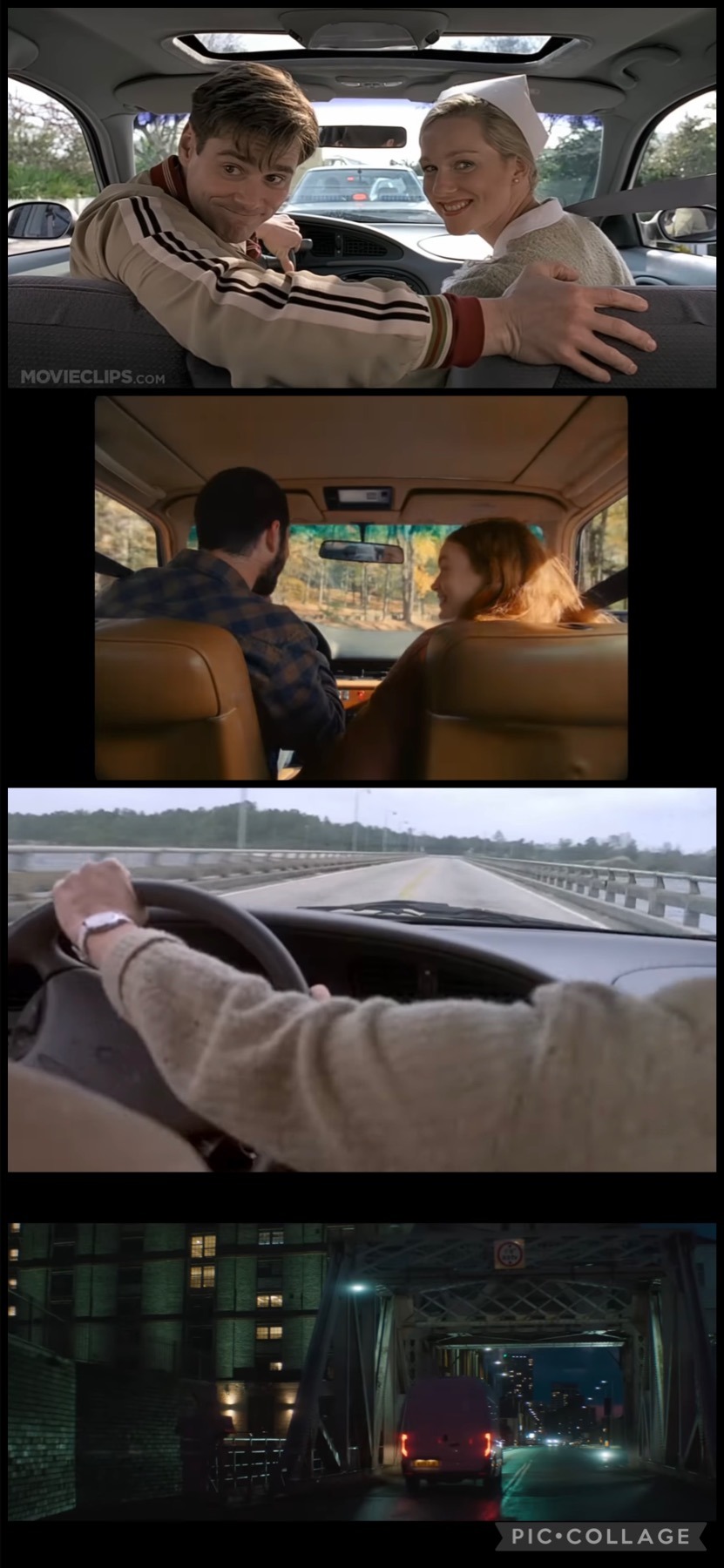
The turning point
What was once lost
When they return home Truman confronts Meryl, but she calls out for help and Marlon arrives with beer. Meryl leaps into his arms crying as he comforts her, but he's looking at Truman when he says "everything's going to be okay, it's all going to be fine." The next scene cuts to Truman and Marlon sitting at the end of an unfinished bridge together as Truman begins to tell Marlon what he's been through. "Maybe I'm losing my mind, but it feels like the whole world revolves around me somehow." Marlon replies by saying "The last thing that I would ever do is lie to you. I mean, think about it Truman. If everybody is in on it... I'd have to be in on it, too." The screen cuts to the director feeding him the lines but we can also see that Marlon has been as honest as he could be within his role on the show. To placate Truman and encourage him to stay, he is reunited with his father who he hasn’t seen for 22 years. Truman seems apprehensive about the reunion, but Marlon encourages him to go along with it.
In the 'willow' music video Taylor enters a glass display case and starts performing for the crowd of an old fashioned circus. As her lover approaches for the first time they reunite through the glass pane but it feels like the glass was intentional to keep them apart, despite their intentions to be together again. This imagery is echoed over and over again throughout Taylor's music videos and the eras tour. We can interpret this as a visual representation of being closeted in plain sight or as a form of protecting something that's delicate. Judging by the way they all end up shattered in the end, they seem to be foretelling what's still to come.
Test run
Truman was never really planning on leaving the first time because he had planned to fail. There are a few benefits of acting in this way. Firstly, we know that Truman had never crossed the bridge before and his attempt forced the director to play his hand by revealing what obstacles were ahead if this was his exit route. Enacting his bigger plan before seeing what was ahead would mean that he's more likely to fail if he crosses the bridge while under prepared for what is on the other side. Secondly, if everyone has assumed that he has failed, they won't see his bigger plan coming if they believe he's feeling defeated. They placated Truman by reuniting him with his father, but that backfired on them when he escaped when they least expected it.
Taylor mentions that "Every bait and switch was a work of art" in 'mastermind'. I wasn't sure if I was using this term correctly when search results were full of business examples and psychologists were linking it with the act of gaslighting, but the type of bait and switch I was intrigued by is akin to a chess move. This type of move is often referred to as the 'queen sacrifice'. By purposely leaving the queen unguarded, your opponent is lured into the trap, only to be met with a devastating counter attack. This, and the element of a trial run before the big reveal, is what lead me to consider that the 'lover' album may have been used as bait for the sale of her masters. If she alluded to coming out straight away to entice the sale that was going to happen anyway, that obstacle wouldn't get in the way of her bigger plan. (It is not my intention to imply that this theory is true, so this is just a hypothetical option in favour of the bigger picture.) If this was a prelude for a bigger plan, it still would have been extremely devastating when it did happen.
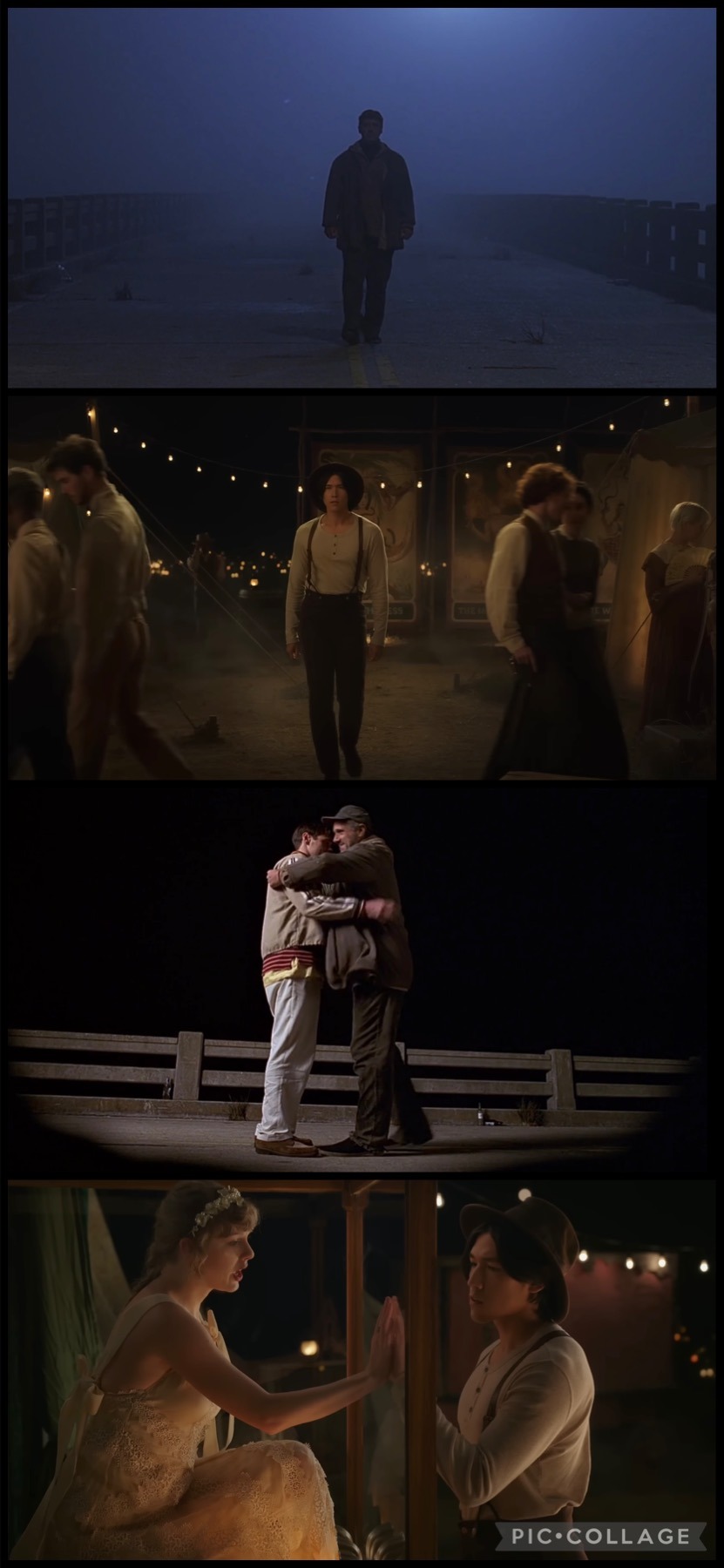
The show must go on
This is the turning point in the movie when we begin to see Truman's life from the directors point of view. "An entire human life recorded on an intricate network of hidden cameras, and broadcast live and unedited 24 hours a day, 7 days a week to an audience around the globe." We start to find out how they had to manufacture ways to keep Truman on the island. His father dying played a big part of that, but to the viewers it's just another plot twist in the show they've been watching for entertainment. They have 5,000 cameras around Seahaven now, but started off with just one before he was born and they've been watching Truman's life unfold ever since. "We accept the reality of the world with which we are presented." This is the director's response as to why Truman has never left Seahaven or found out about the show. This contradicts everything we've seen from Truman's point of view. Just because he could leave doesn't mean he could leave freely. How much harder does he have to try before the director will let him go? He goes on to explain that with Meryl's decision to leave the show, a new love interest will be introduced and he has hopes for the first on air conception to occur. It's evident that Truman leaving would derail the directors plans for the show going forward.
Taylor has described how writing a song is like sucking the snake venom out of a bite. Expressing herself creates distance between the heaviness of what she's experienced and I believe this is why she sees herself as the narrator (or director) of her discography at times. During the 'folkmore' set on the eras tour she describes herself as the narrator of the teenage love triangle. It's also common for Taylor to be more than one character at once. At the end of 'the man' music video we discover Taylor is the director, and then it's revealed that Taylor was also the male actor that had been wearing a disguise. This implies that Taylor is James in the love triangle and based on the evolution of her speech, we can infer that as the director she chose Betty in the end. This feels like a clue that we should consider that she has been showing us her version of events from different perspectives all along.
The doll house
Everything on the show is for sale, including their wardrobe, food products and dollhouse style versions of the homes they live in. These elements are jarring after seeing the level of animosity Truman was experiencing with each road block he faced. It feels like they've overstepped a boundary by consuming every detail of Truman's life.
In the 'lover' music video, we first see the lover house is within a snow globe and our first shot of Taylor is through the peephole. The couple dancing throughout the house seem to be sharing a romantic moment, but the entire experience feels voyeuristic. No rooms are off limits as we see them in the bathroom swimming inside of a fish bowl. "Can I go where you go? Can we always be this close, forever and ever?" plays at the same time. It feels like we're asking that of her. It becomes uncomfortable to realise how much we want to have access to every detail of her life.
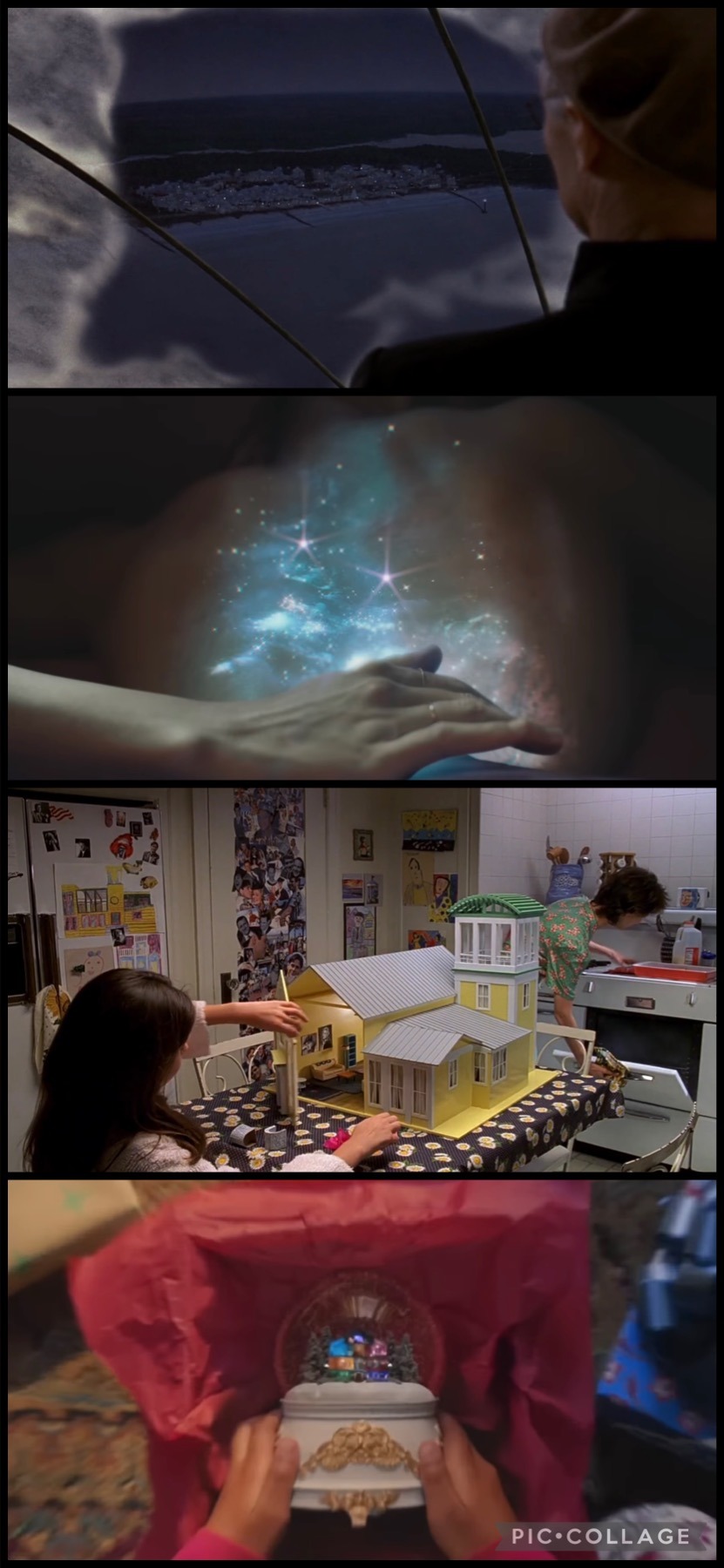
Back to normal
Headquarters
Not only is Seahaven contained within a dome, the director and his control centre is housed within the moon structure. From the interview with the director we can ascertain that he doesn't usually reveal this much behind the scenes, but the return of Truman's father required some damage control.
The vault in the 'I can see you' music video is reminiscent of the moon shaped structure the director worked out of. The connection between these and the overall theme of the music video reminds me of the scene in 'the hunger games mockingjay' where they rescue Peeta from the capitol, only to find out he was trained to attack Katniss. This scene has an eerily similar asylum vibe like the 'fortnight' music video as well.
The mask
The next morning we go back to Truman in the bathroom again, as if he's just started another regular day. He seems cheerful as he's using a bar of soap to draw an alien outline on the mirror, while at the same time implying that he feels alienated in real life. This facade of normalcy he is presenting after his plan had failed is on purpose to lull the director into a false sense of security. If everyone thinks he has given up and believes he is resigned to staying after all, nobody would see his final escape plan coming.
Just like Taylor showed us with the visuals of the delicate performance on the eras tour, the mask is breakable. Now that we know that Taylor is the one breaking down the facade herself, it becomes harmful to refuse to see Taylor for who she really is underneath the pop star persona. And just like with Truman leaving in the end, Taylor has shown us that she's choosing herself now, regardless of the consequences. So we can either choose to join her, or sit back in defiance until she walks away.
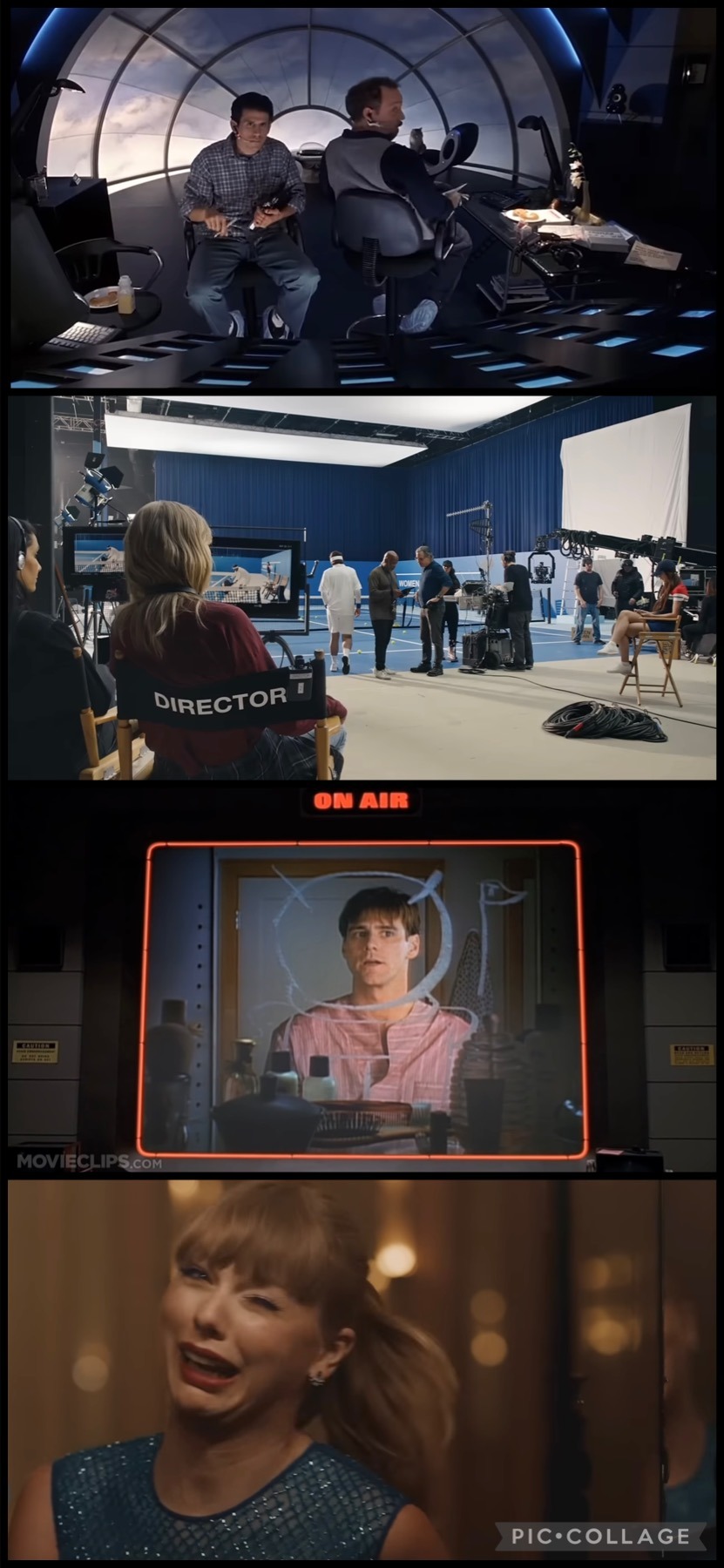
Back to work
As Truman returns to the office it becomes more obvious where all of the cameras have been hidden in plain sight. They're everywhere, including inside his pencil sharpener. But the least obvious camera is the one Truman is wearing, his wedding ring. This came from his father, something he purposely gave to Truman as he was supposedly drowning. He never took it off because it was a reminder of what he had lost at such a young age. Truman was able to escape in the end because he took the ring off and left it behind. They had no way of tracking him if he wasn't wearing it. In hindsight we can see that Meryl's necklace also contained a camera that was used frequently.
If all of the moon and black holes references are a codeword for cameras or surveillance in the Truman show, we can consider that Taylor has used them in her music videos in a similar way. 'The man' music video begins with a similar office scene with a man who is charming and magnetic, but the wink at the camera implies that he's also putting on a performance. At the end of a work call Truman mentions that "life is fragile" after he's introduced to his new love interest. Just like Truman's comment, Taylor has used the word delicate to to describe the fine line between the brittle nature of the facade and how easily it could all fall apart, like what occurs during the 'delicate' performance.
This place is mine
After Meryl left, Truman moved down to the basement. This is the only room in the house that contained anything that was truly personal to Truman with his padlocked chest of mementos and remnants of old hobbies. But on top of all this it was also the room with the least amount of cameras, making it the perfect place to hide.
In the 'lover' music video the only space that is personal to Taylor is the attic, and it’s just like Truman's basement as both rooms are typically used for storage. If you look closely you can see a familiar trunk to the side as she's reminiscing over old pictures on a projector. On the eras tour the only real piece of the lover house is the attic seen throughout the 'folkmore' set, the rest was burnt away on screen and ever since the setlist changed it has been falling over instead. This change reveals that it was a facade all along, similar to how we begin to see behind the scenes half way through the Truman show.
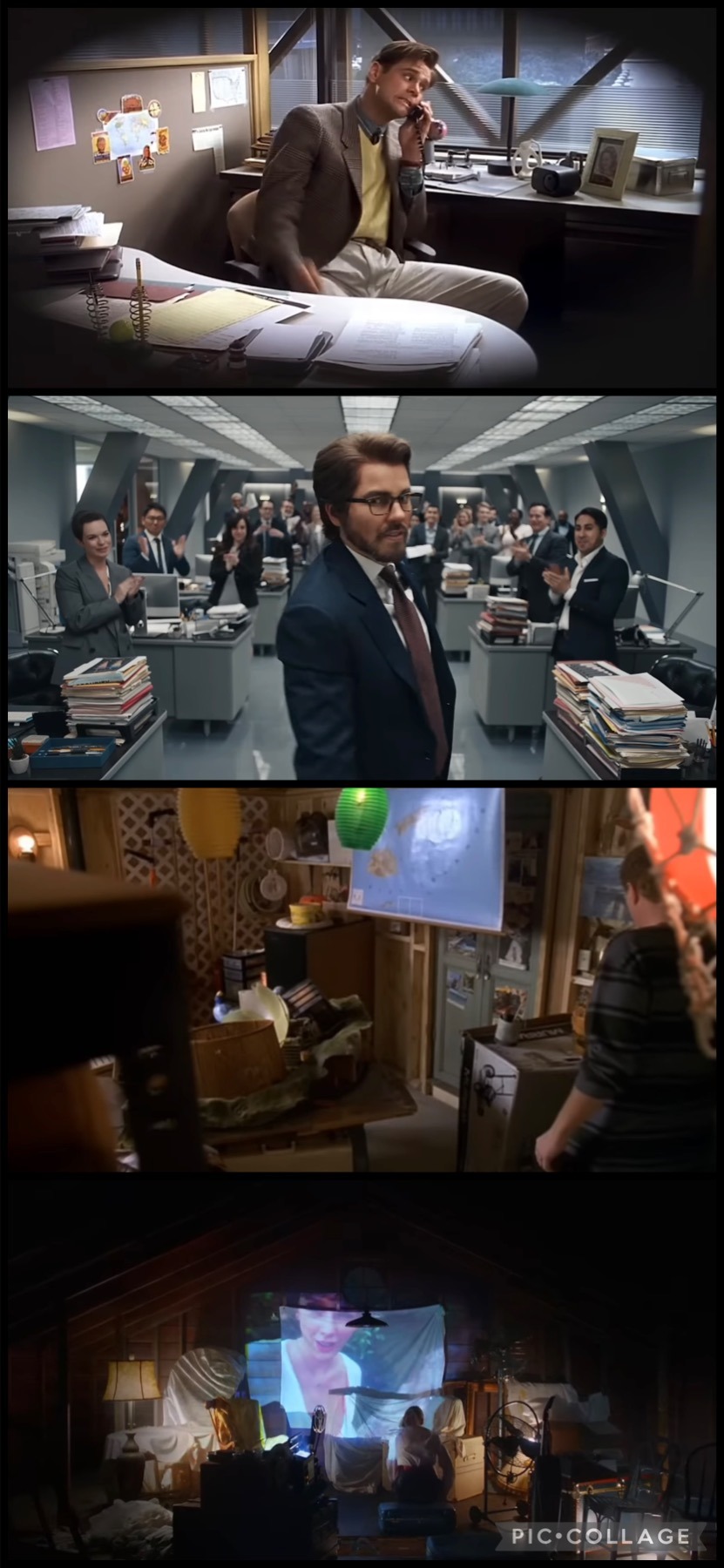
The escape route
The map
Truman's desire to travel to Fiji is heavily featured as Truman's motivation for leaving Seahaven. There's evidence of this throughout the basement, including a large map of the island. Was this really his dream destination? No. Talking about going to Fiji encouraged the director to reveal his endeavours to prevent him from leaving. If Truman was constantly being challenged with his fear of the water, he was also being exposed to potential exit routes and obstacles. Truman's desires to go to Fiji was a facade to masquerade his true intentions of plotting his escape without raising suspicions.
One of Taylor's latest songs explores wanting to escape to 'Florida!' and reflects Truman's dreams of moving to Fiji. Another map Taylor has shown us in her music videos is the man wall. It's seen as a road map for her future rerecords with the end goal of coming out as queer, similar to what Elton John did at the peak of his career. Now that we can see that Truman revealed his dreams to travel as a means of testing his opponent, we can begin to understand that Taylor may have used her attempts to come out as queer in a similar way. If Taylor had expressed her intentions to come out of the closet behind the scenes, she would have been reminded of the challenges she would face if she did so. We see a small portion of this scenario play out with political discussions during the 'Miss Americana' documentary.
Behind the curtain
The director is concerned about Truman being asleep in the basement so Marlon is sent to investigate. When he arrives he finds a decoy in the bed and a tape recorder of Truman snoring. As he searches the rest of the basement, he pulls back the map to reveal what's inside the closet. This is the moment everyone discovers that Truman has escaped and that the map of Fiji was a disguise for his master plan all along.
The man wall is the most fundamental Easter egg for many Swifties, with endless theories on how to decode it. But what if the biggest Easter egg of all is actually set up as a trap to draw our attention in, so that we become so focused on it's significance that we don't notice the bigger picture? The subway wall is made up of small square tiles, with Taylor Swift themed posters and the rerecords written with spray paint over the top to mimic graffiti. But if you look even closer still, you will see that there's also a crack down the middle of the man wall map. This suggests that there's something hidden behind it, just like with Truman's map.
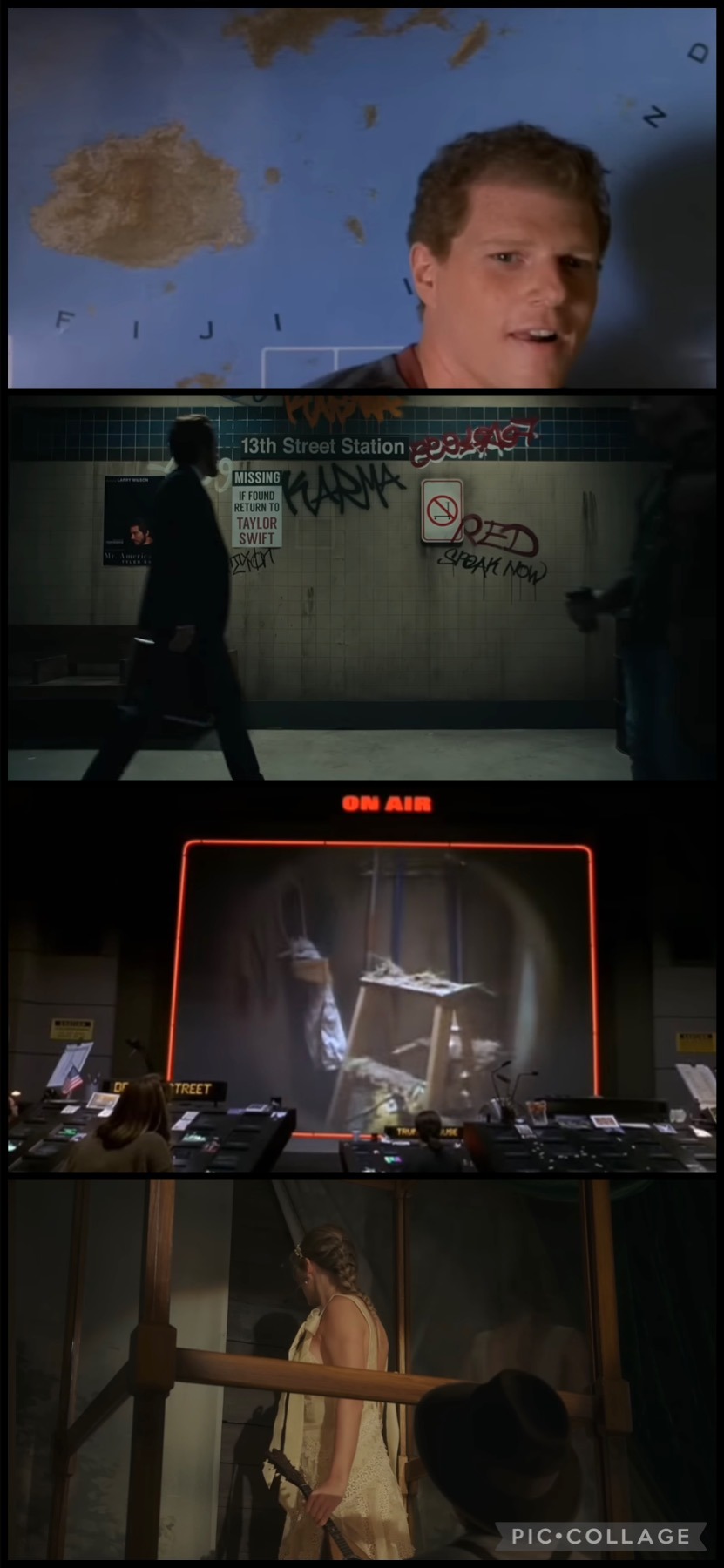
The tunnel
When Marlon opens the closet in the basement, we discover that Truman had dug a hole through the ceiling and this is how he escaped. Marlon climbs up the stepladder and we see his head pop out of the hole in the garden. We could assume Truman began digging this hole after Meryl left because we can see he left behind the same multi tool that she advertised in the beginning, but he was in the middle of digging in the same spot when she came home that day. All we had seen was an awkward shot of Truman from behind as he was working in the garden bed. Truman also purposely left patches of grass unmowed so he had an excuse to be frequently working on the old lawn mower in the basement, something that was quickly replaced once Meryl left.
The ending of the 'delicate' music video is what sparked this deep dive into the Truman show. I discovered that the bar Taylor enters is called the gopher, an animal famous for digging holes underground. This unexpected connection to Truman's method of escape was unbelievable after picking up on many of Taylor's hints towards a departure.
The trap door
If Truman had been digging a tunnel in the garden from the beginning, how did he get away with it? He disguised the hole by filling it with balls and rocks in just the right size that were painted to look like garden ornaments. This is echoed in the scene where Truman is telling Marlon about how he wants to go to Fiji. Marlon asks if Fiji is near Florida, so Truman demonstrates with a golf ball to show that it's practically on the other side of the world. The way Truman is describing it implies that the tunnel is hidden on both sides in a place where the cameras can't find it, and all that's left now is to plan his escape route.
Taylor’s version of Truman’s golf ball is the painted nails aligned with the 2 and 8 on the karma coffee cup, pointing to where her journey through the tunnel starts and finishes. Other ball shaped references include the pearl coloured balls floating around Ice Spice in the 'karma' music video, the golden orbs in the 'willow' music video and the tennis balls in 'the man' music video. When Taylor attempts to leave the glass case in the 'willow' music video, she finds it has been boarded up. She tries to find a way out through the glass, only to reveal that she knew that there was a trap door underneath her feet the entire time. We hear the lyrics "I come back stronger than a 90's trend" at the exact same time Taylor goes down the tunnel. And which trend is she referencing? The Truman show, of course.
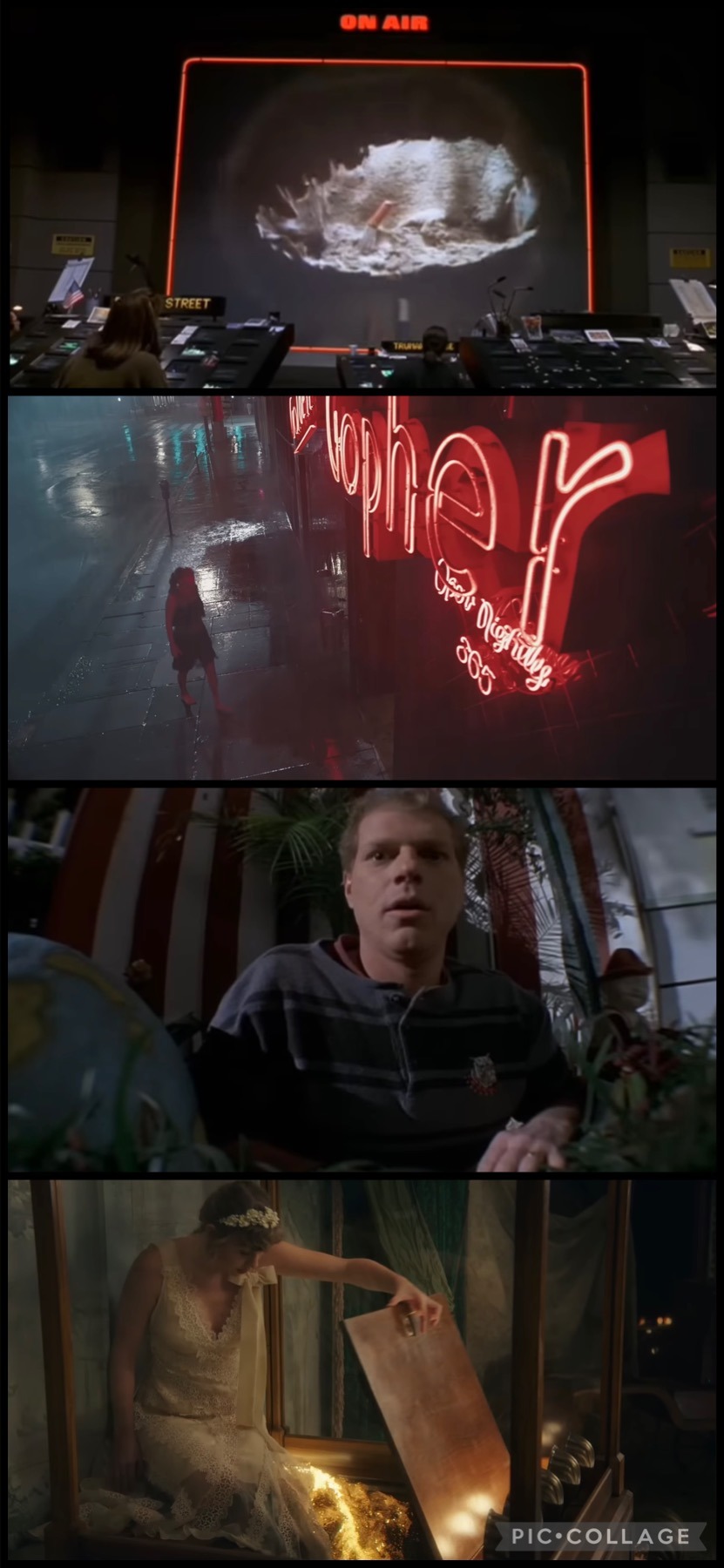
Leave everything behind
Cut transmission
Once the director had realised that Truman had really escaped, he was left with no choice but to cut transmission on the live broadcast for the first time since the show began. Panic ensues for the viewers who didn't see this coming, meanwhile we see Sylvia watching from home in anticipation. Ratings for the show are at an all time high as everyone at home waits to find out what happened to Truman.
It's interesting that Taylor drew inspiration from this loading screen for the eras tour poster considering it's a reference to the moment Truman escaped. It draws a very clear parallel to his story, implying that what we're watching on the eras tour is the Taylor version of the Truman show.
Lost at sea
It's unclear how long Truman had after he escaped before the search party started. At first it seemed possible that Marlon left the car door open when he arrived for Truman to escape, but it's more likely he was just in too much of a hurry. It' seems 's likely Truman had some time to escape on his bike undetected. His fear of water meant checking the ocean would be the last place they would think to look for him, which is exactly what happened.
This moment after Taylor entered the bar in the 'delicate' music video reveals a sense of clarity just before she opens up her eyes. The ending of Taylor's story is yet to happen, but from what she's said throughout the tour, she's not planning on slowing down anytime soon.
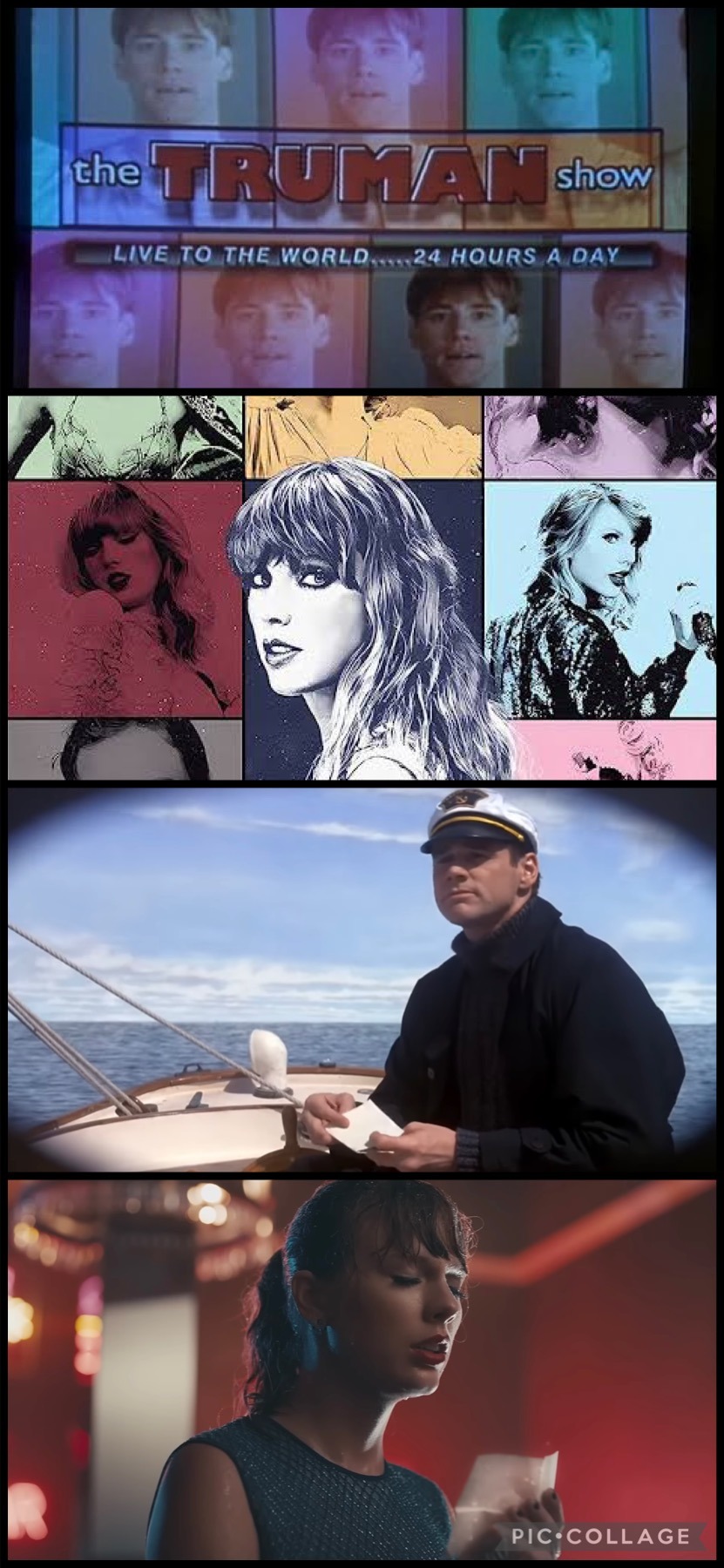
The note
As Truman sails off we see him pull a note out of his pocket. All he took with him was the collage picture of Sylvia. This symbol of hope for his future was the only thing he took with him. "The only thing that's left is the manuscript, one last souvenir from my trip to your shores."
When Taylor left behind her life's work and started over by herself, she carried a picture of the one that mattered most with her when she left as well. If you look close enough at the man wall, you can see a polaroid shaped outline underneath the black karma letters, as if something that was once there had been taken away. Just like Truman's collage picture, this missing piece represents the secret note from the 'delicate' music video. The one piece of evidence that meant something to them, when so much of their lives were full of half truths and lies. And what's on the polaroid picture? Proof that Taylor is queer... "Like a rainbow with all of it's colours."
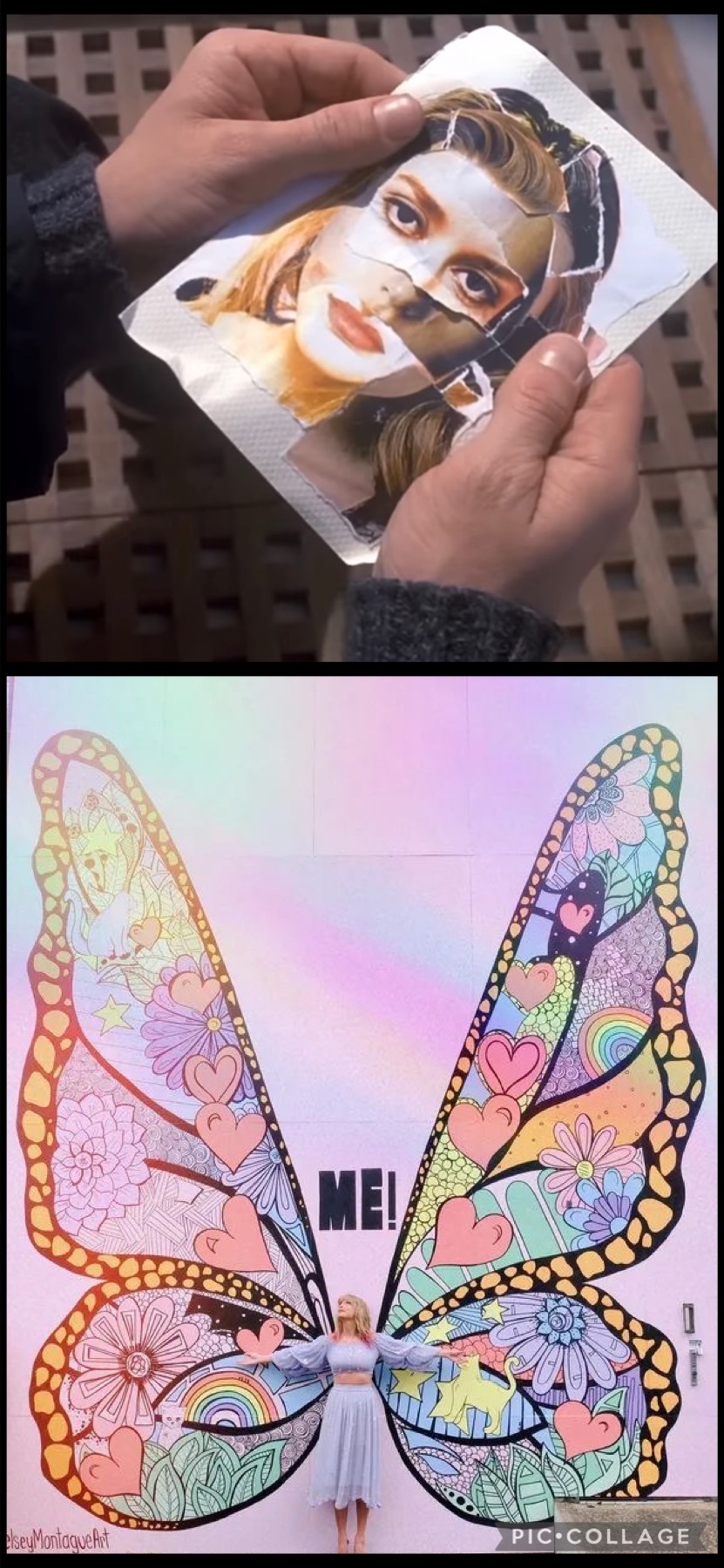
It's time to go
Almost drowned
Once they locate Truman as he's escaping on the boat, the director utilises his power to create a storm to derail Truman's attempt to escape. When his first attempts to force Truman to turn back fail, he orders the workers in the control room to hit the boat with the largest wave with to intentionally capsize the boat. They object to risking Truman's life, but the director goes ahead anyway. The wave overturns the boat and Truman almost drowns. As the director escalated his attempts to make Truman stay, it became clear that he would rather let Truman die than watch him leave if he refuses to stay. This highlights how unethical the director's attachment to Truman and the show had become over the years.
In the 'cardigan' music video we see Taylor clinging to her piano in the ocean, just like Truman did with his boat. This shows her determination to fight for her future despite the cost. The trap door Taylor escaped out of in the 'willow' music video is just like the exit points under the stage of the eras tour. Taylor's most iconic exit is after the surprise songs when she dives into the stage. Her character then swims against the current just like Truman did and when she reemerges again it's for the beginning of the 'lavender haze' set.
The getaway boat
Despite the director's attempts, Truman recovers from the storm and sails far enough that his boat crashes into the side of the dome wall. Truman managed to escape Seahaven after a lot of planning, but I think he had some help along the way. If Marlon was aiding Truman's escape plans, he would have been a crucial liaison behind the scenes. Throughout the interview with the director we get a glimpse of Sylvia and find out that her home is full of anti the Truman show propaganda. These include pictures of cast members that could be open to joining their side, with Marlon listed as being their best bet. It's possible the protestors worked together to smuggle Truman's father into Seahaven to encourage Truman to leave. One of the posters shows a young Truman in what appears to be a pizza themed clown costume. Pizza is mentioned a few times by the control centre workers and by the security guards of a car garage. This could be the common factor connecting the protestors helping Truman escape, as well as providing an inconspicuous meet up place to swap information that wouldn't draw attention.
Just like Truman had help, Taylor had a team working together in the 'I can see you' music video. This depicts an alternate view of Truman's escape, with a team breaking in from the outside to rescue Taylor from the vault. Many of the guest appearances in Taylor's music videos are representing the other side of Taylor, more so than any particular muse. Many of the scenes featuring Ice Spice in the 'karma' music video also mimic the ending of the Truman show.
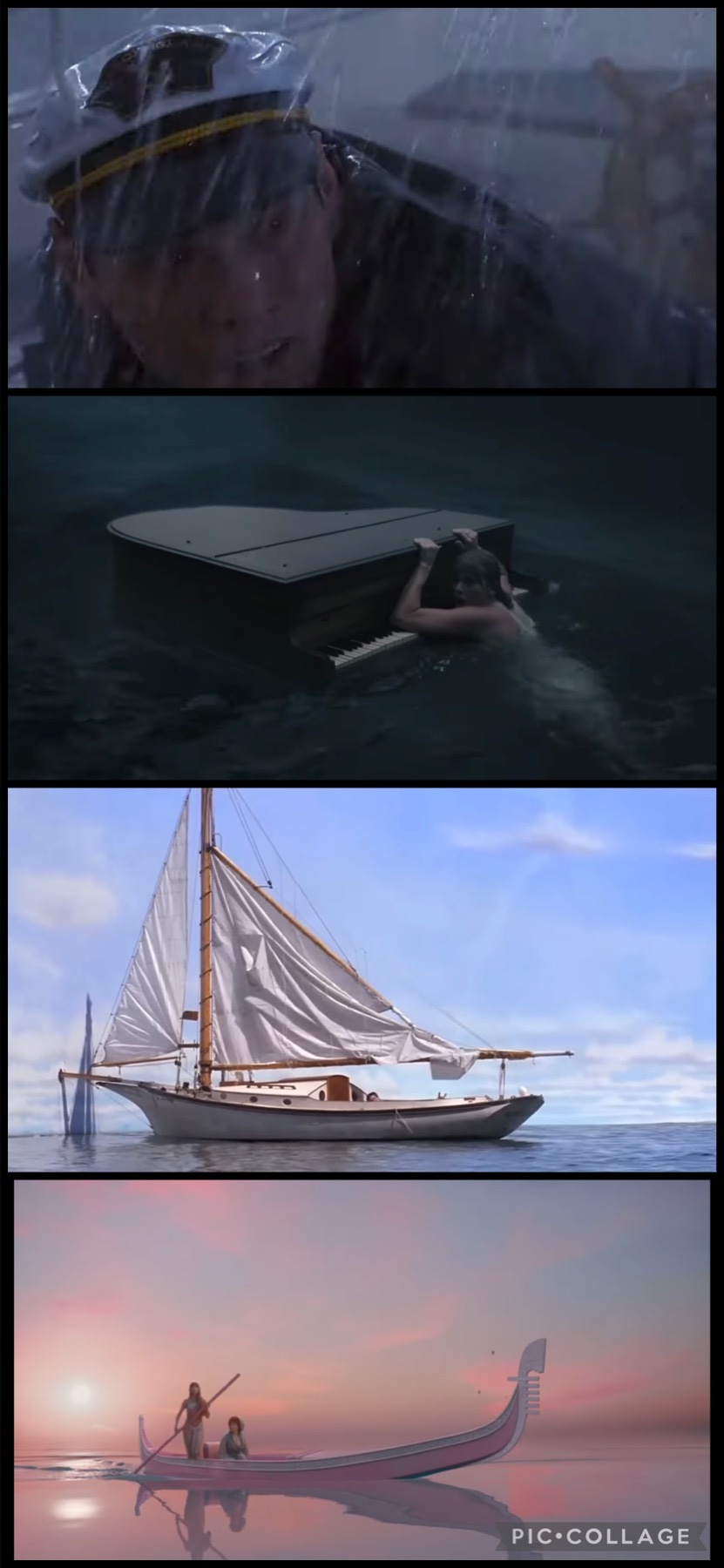
The stairs
Truman found the stairs that lead to the door and is so close to leaving behind the only place he's known. All of this is unfolding because Truman reached a point where his own wellbeing was more important than the character he had been portraying for the audience. Sylvia warned him in the beginning that everyone was watching him. This would have confirmed any suspicions Truman already had and lead to a life of being on high alert knowing he was being monitored at all times.
Both the public and private sides of Taylor have experienced the same restrictions over time, forced to keep a large part of her life hidden from others at all times. The scene with the moon and Saturn implies that an alternative ending to Truman's story is in store for Taylor. The moon was the home of the control centre watching over Truman day and night. Capturing the moon and Saturn in the 'karma' music video suggests that both sides of Taylor have worked together to reclaim the role of director, and are now working together to rewrite their story so that they can reunite and move forward together.
Captive
Finally in a last ditch effort to persuade Truman to stay, the director talks to Truman for the first time. It's clear the director has grown attached to Truman to the point that he doesn't see Truman beyond the character he's crafted over the years, but he only sees the public persona of Truman. The director is pleading for Truman to stay, to let the show continue as it is and claims that he knows Truman better than he knows himself. "You've never had a camera in my head!" is the only thing Truman says in defence. This sentence epitomises everything Truman has experienced living in Seahaven. After all, he was wondering when it was going to end when he was still in school. If the director truly knew what was best for Truman, he would have ended the show years ago.
When Truman told the director that you can't see inside my head, we can assume Taylor is trying to say that we can't see inside her heart. During the 'Me!' music video Brendon Urie opens a heart shaped door that reveals what's inside his heart. This implies that the music video revealed what was in Taylor's heart from the beginning. "When it's like, "me-ee-ee," it's like dancers, cats, gay pride, people in country western boots. I start riding a unicorn, like just everything that makes me me." This is how she describes the music video during the 'Miss Americana' documentary. "And for a fortnight there, we were forever." I believe this is a reference to the fourteen songs on her 'debut' album. Her first and potentially most authentic album is full of songs she wrote before she became famous. And then beginning with 'fearless', Taylor actively added in male muses to her songs to camouflage her queer identity. Unfortunately this was also the beginning of the gap between her public and private life growing apart. Looking back we can see that despite the pain this caused, she never lost hope of reuniting them again.
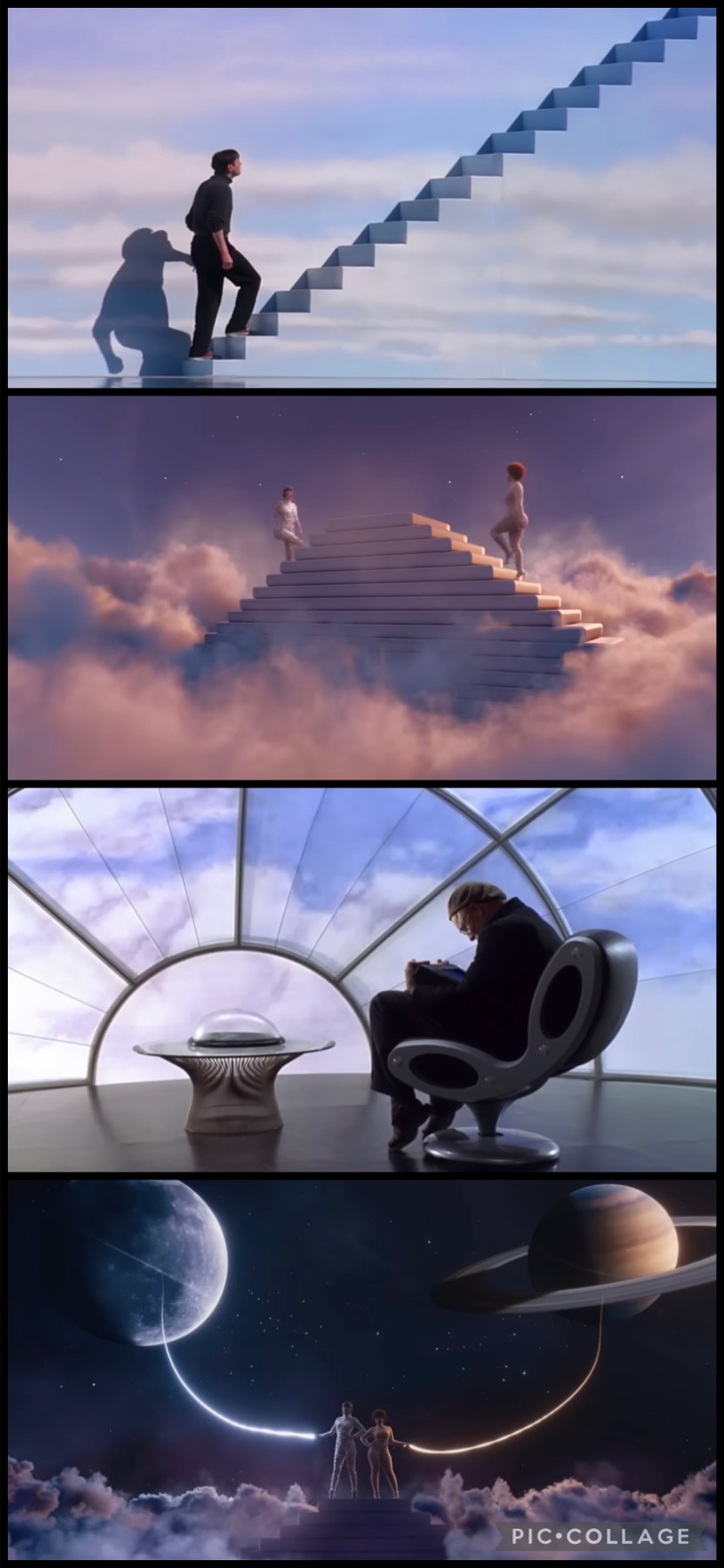
How did it end?
The final bow
The Truman show challenges our perception of how ethical it is to have such unobstructed access to Truman’s life. We’re left questioning if our entertainment was worth the price he was paying by spending his whole life living in the spotlight. He bows for the audience watching at home and ends with one final “Good morning! And incase I don’t see ya, good afternoon, good evening and good night!” before he turns and walks through the door. The director was left with a look of disgust as he realised Truman had been preforming for the audience all along. Those who had seen the signs watched on with anticipation and those that didn’t were left feeling shocked and confused.
At the end of a theatre performance, the cast will come back on stage one last time to give their final bow of the night as the audience applauds the performance they've just witnessed. We then have to consider that Truman and Taylor's final bow was an acknowledgement of the fact that they had been putting on a performance the entire time. Just like in 'the manuscript', "looking backwards might be the only way to move forward." Going back through Taylor's history and finding the bread crumbs she left along the way will help us understand that the queer version of Taylor had always been there, we just had to know what we were looking for to be able to see it.
The door
As he steps through the door we wait in fervent anticipation to see how Truman's story ends, only to watch as the credits start rolling without an epilogue. This feels frustrating when we had been hoping to see Truman and Sylvia reunite after many years. Instead, this kind of ending is encouraging us to go back to the beginning and reconsider the story through a new lens after learning about how it ended. Each time you rewatch it you can pick up on the deeper layers of the story, seeing more evidence of Truman's discomfort from living an inauthentic life, and how much determination it required to overcome the challenges he faced along the way. Any further explanation would have diluted the magnitude of the moment Truman felt free for the first time in his life. Just being able to walk through the door in the end was the ultimate accomplishment.
The story Taylor has been showing us was never a revelation of her muses, but a slow unravelling of her experience as a famous person who has had very little privacy throughout her life. She's giving us a peak behind the curtain and allowing us to see who she really is beyond the larger than life character we've all built her up to be. And whether we like it or not, she choosing herself now above all else.
The only difference between Taylor and Truman’s story is that Taylor’s not leaving, she’s simply just stepping out of the closet.
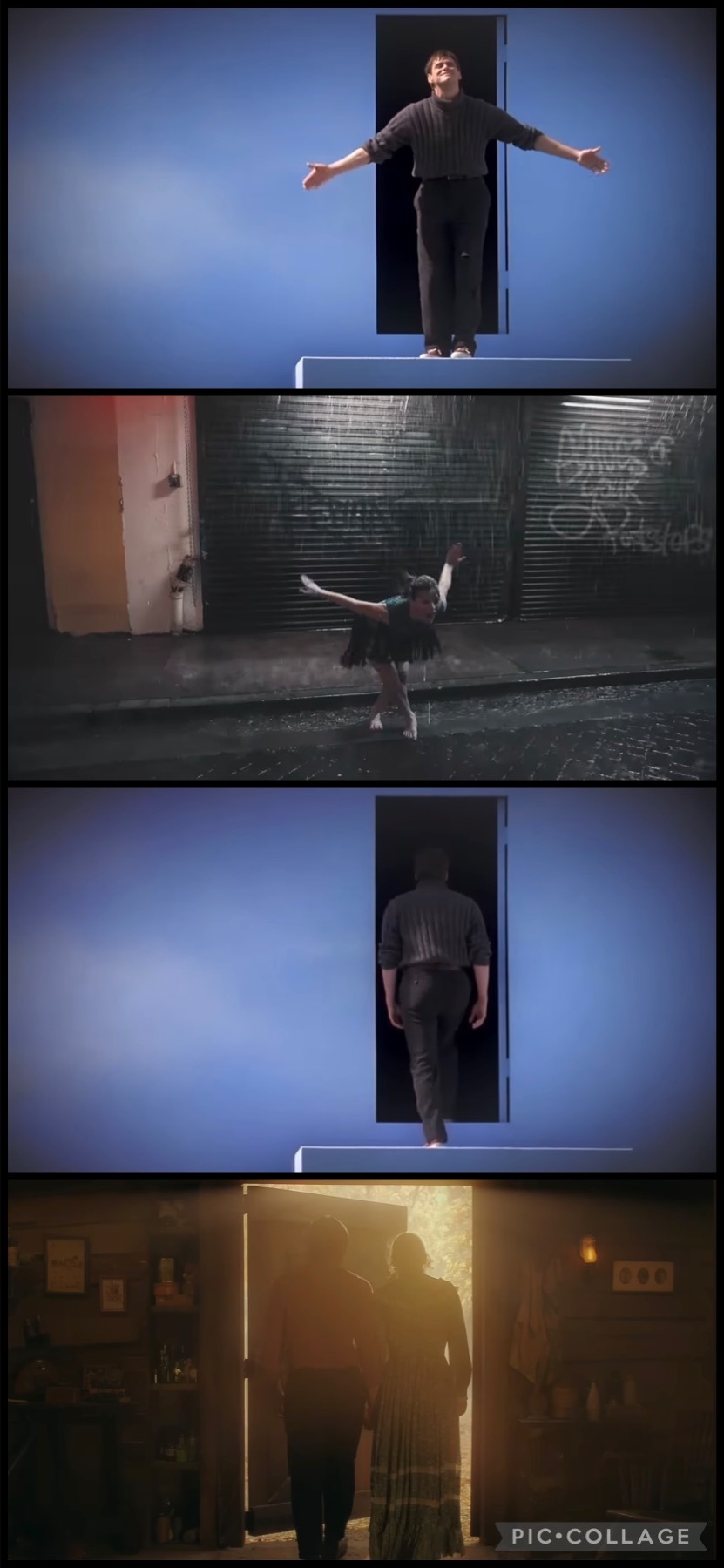
Meet me at midnight?
After turning a pumpkin into a carriage and creating a fancy dress to wear, the fairy godmother forewarns Cinderella before she leaves for the ball.
“You must understand, my dear. On the stroke of 12, the spell will be broken, and everything will be as it was before.”
The same is true for Taylor.
No matter how much she accomplishes in the spotlight, she is always going to be the truest version of herself underneath the layers of her pop star persona.
"Dear reader, will you still want me when I'm nothing new?"
When the clock strikes midnight, are you still going to want Taylor when you can finally see who she really is underneath?
Who she has been all along?
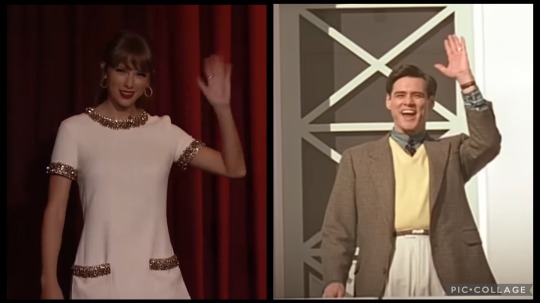
"A pathological people pleaser who only wanted you to see her."
A tortured poet,
Kylie x
🧡
#taylorswift#the eras tour#the truman show#Taylor Swift the Truman show#gaylor#🎃 anon#taylor swift music video analysis#taylor swift eras#meet me at midnight#friends of dorothea
154 notes
·
View notes